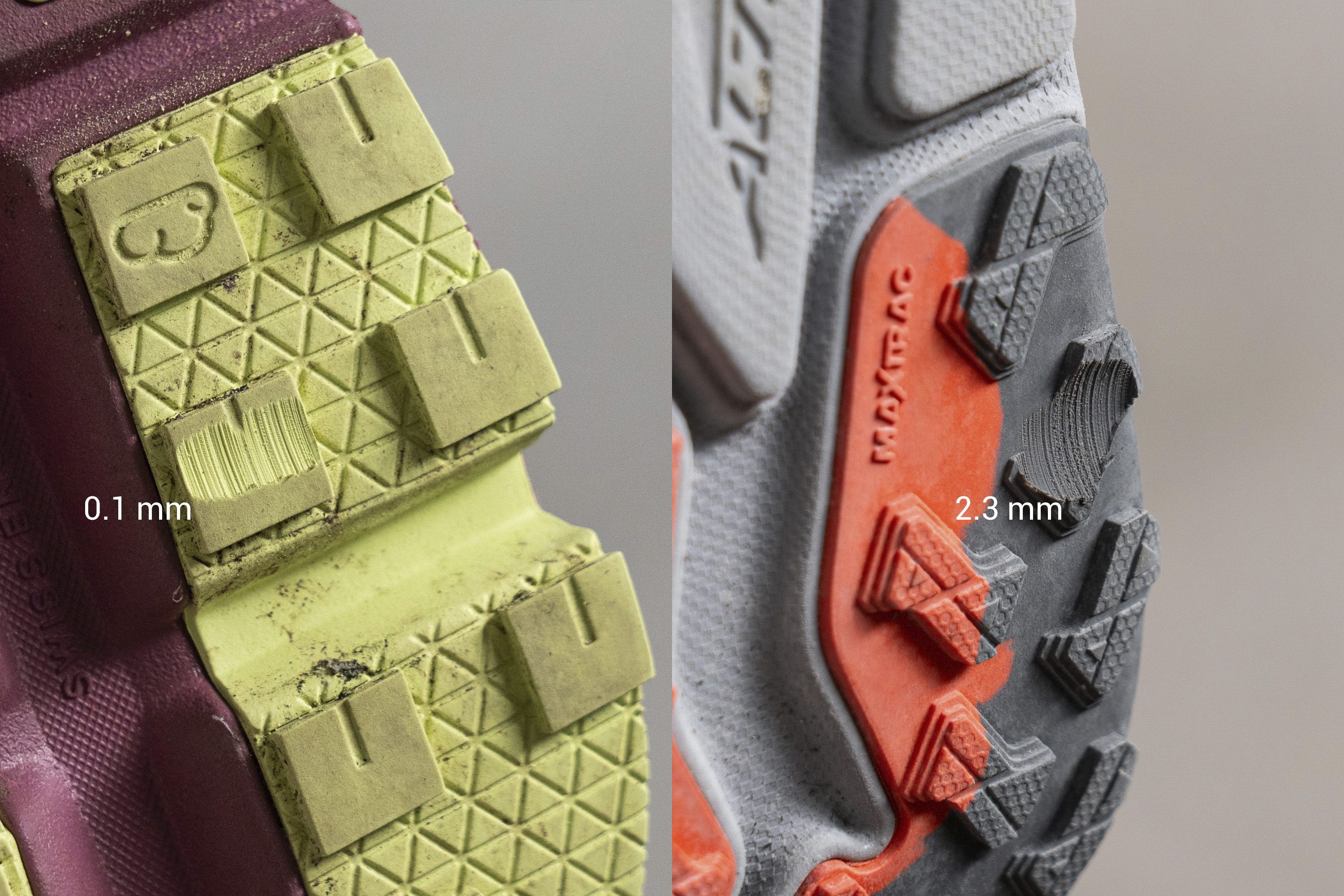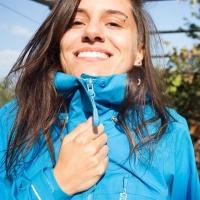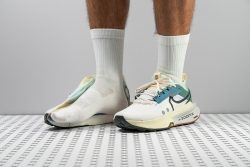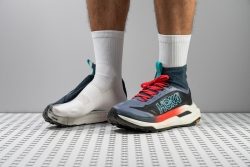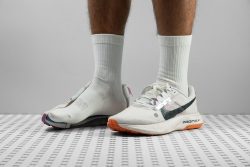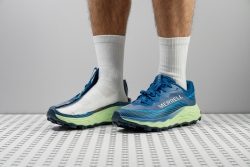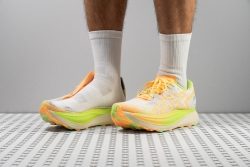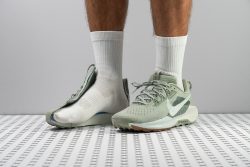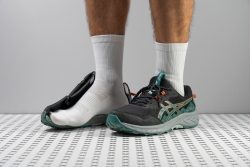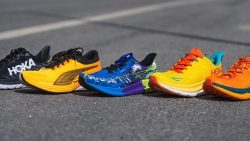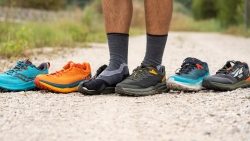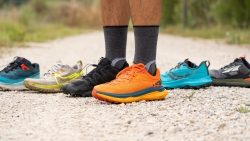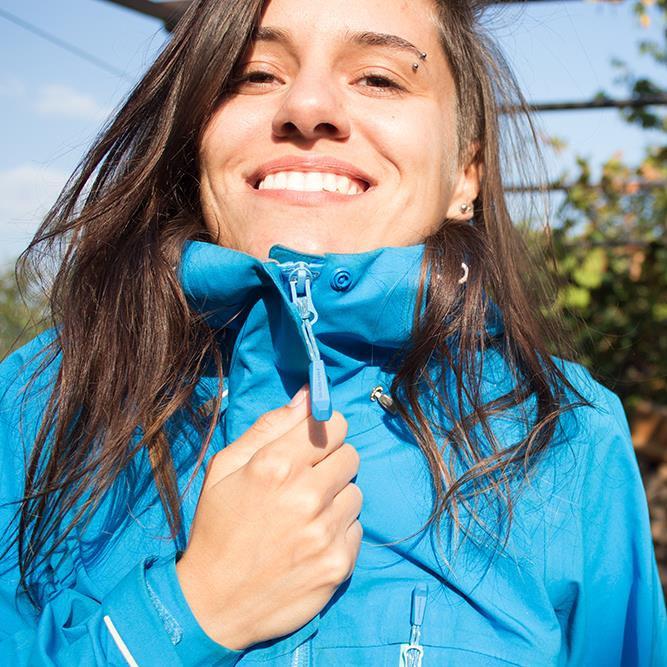7 Best Trail Running Shoes For Women in 2025
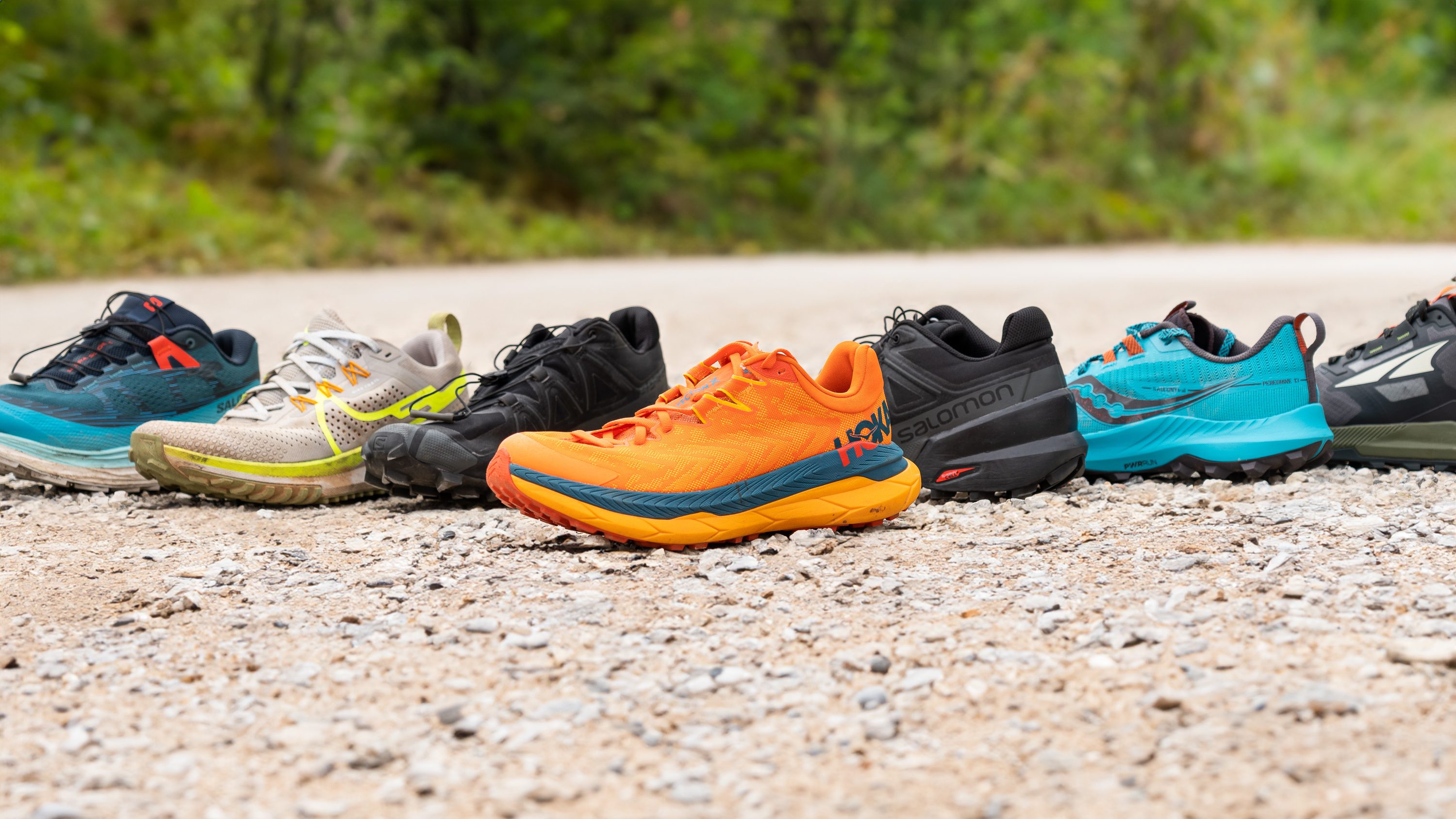
We buy shoes ourselves. We earn commissions when you buy through us, at no extra cost. Why trust us
Choosing the right trail running shoe can be overwhelming given the number of choices and different features. We firmly believe it's best to find one perfect pair! So, we're here to help you out.
We took our time to test different trail runners for women from various brands. We tested them on the trails and in our lab to be able to properly review them and publish our findings. This also allowed us to select the very few best ones.
Whether you’re looking for a lightweight racer, a protective shoe, or a long-distance tank, we got you the answers on this list.
How we test trail running shoes for women
We conduct a multitude of tests on all the women's trail running shoes in our arsenal. With our own shoe testing lab, we gather data on each shoe that helps to explain how they fit and perform. Even more, we also make sure to do the following:
- We get them with our own money to avoid bias.
- We run with each shoe on varying trails: light, challenging, and even extra challenging!
- We slice them open to be able to examine every little detail and do more lab tests.
- Our lab data describes each women's trail running shoe with more than 20 parameters.
Best trail running shoes for women overall
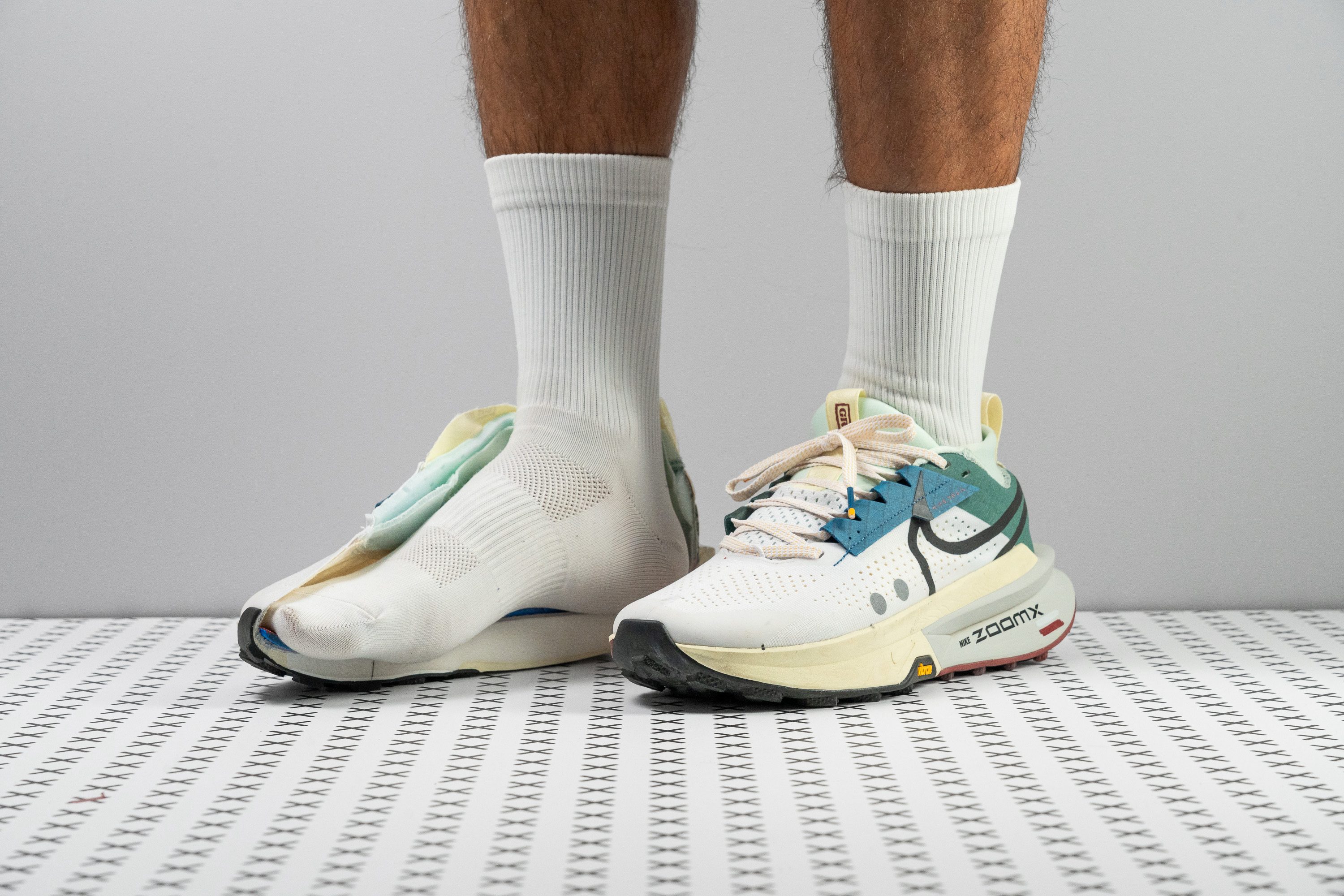

























































What makes it the best?
The Nike Zegama 2 satisfies the adventurer’s needs as it delivers plush comfort, stability and control, and a reliable upper. Our lab results confirm its low drop and gritty traction supports us while its upper remarkably delivers both breathability and protection. Of all the women’s trail running shoes we tested, Zegama 2 is our top choice.
The midsole offers enough impact protection at 30.3/26.3 mm yet feels so comfortable because of its composition. Our durometer shows the ZoomX foam is 36.7% softer than the average. It features a low 4.0 mm drop which enhances control and stability, making it ideal for women who often run on various terrains.
Beneath the midsole, we discovered the renowned Vibram Megagrip outsole which has deep 4.0 mm lugs that grip many types of surfaces effectively. Whether we ran on loose ground or rocky trails, we felt secure with Zegama 2’s traction.
Dotted with ventilation holes, we were amazed how the upper resisted our Dremel, earning a 4/5 durability score. This comes as a surprise since the shoe felt well-ventilated, evidenced by its 4/5 breathability rating. Usually, these two tend to perform inversely.
However, the low drop isn’t ideal for heel strikers. Women who prefer a higher drop should check alternatives.
Pros
- More ZoomX bouncy foam!
- Vibram Megagrip outsole
- Spacious upper
- Exceptional durability
- Superb wet condition traction
- Ideal for midfoot and forefoot strikers
- Ready for long-distance running
- Suitable for hiking too
Cons
- Could be lighter
- Not ideal for heel strikers
Women's trail running shoes with the best energy return
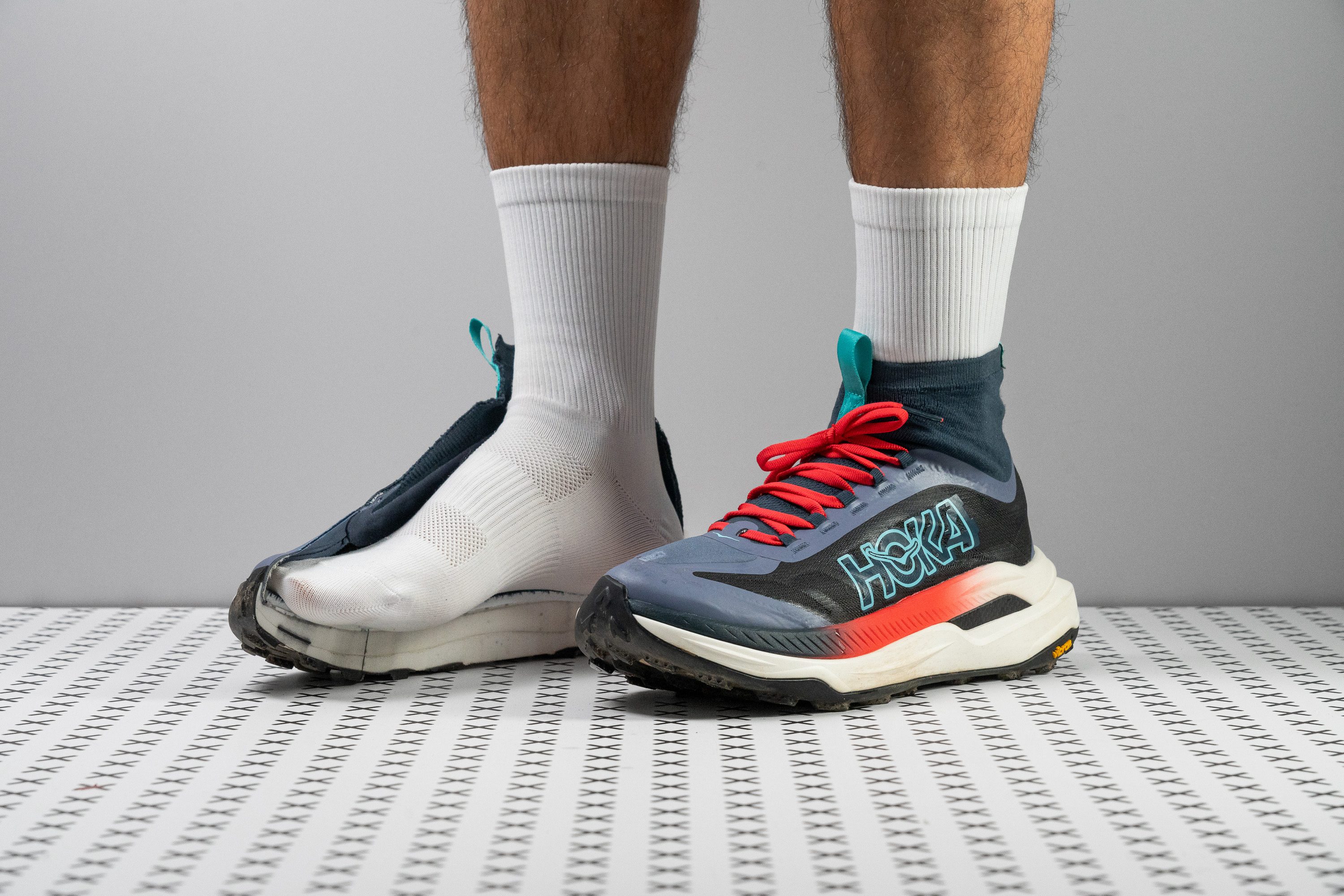


















































What makes it the best?
HOKA Tecton X 3 delivers exhilarating speed like no other, while ensuring a well-cushioned experience. Based on countless miles on foot and hours in the lab, it offers top-tier energy return among women’s trail running shoes.
This pair delivers steady and robust power in endurance runs, ensuring high performance until the end. The midsole brought our runs to life by giving solid energy rebound! To be exact, we measured 69.9% in the heel and 70.2% in the forefoot, much more significant than the 55.5% and 58.5% averages, respectively.
Not only that, its parallel dual-plate design feels snappy on foot. Our flex test in the lab confirms it's 30.3% stiffer than the average running shoe, translating to insane responsiveness.
Tecton X 3 screams comfort with its combination of shock-absorbing and above-average thickness, with exact caliper measurements of 37.8/30.9 mm. It’s a place that provides relief for many, many miles, which helps women perform well on endurance runs. Both the heel and forefoot reached above-average shock absorption scores of 139/120 SA.
As a speed-oriented pair, it has narrow dimensions up front. Those who prefer fewer pressure points can go a half-size up or look for a pair with generous toebox room.
Pros
- A true supershoe for trails
- Ultra-grippy and durable Vibram outsole
- Fantastic energy return from PEBA foam
- Versatile for both long runs and ultra races
- Stability improvements
- Shields from debris effectively
- Premium MATRYX upper
- Designed to dominate ultra-distance events
- Secure fit
Cons
- Sky-high price tag
- Heavier than the Tecton X 2
- Absolutely not for wide feet
- New ankle gaiter may not work for everyone
Best women's trail running shoes for racing
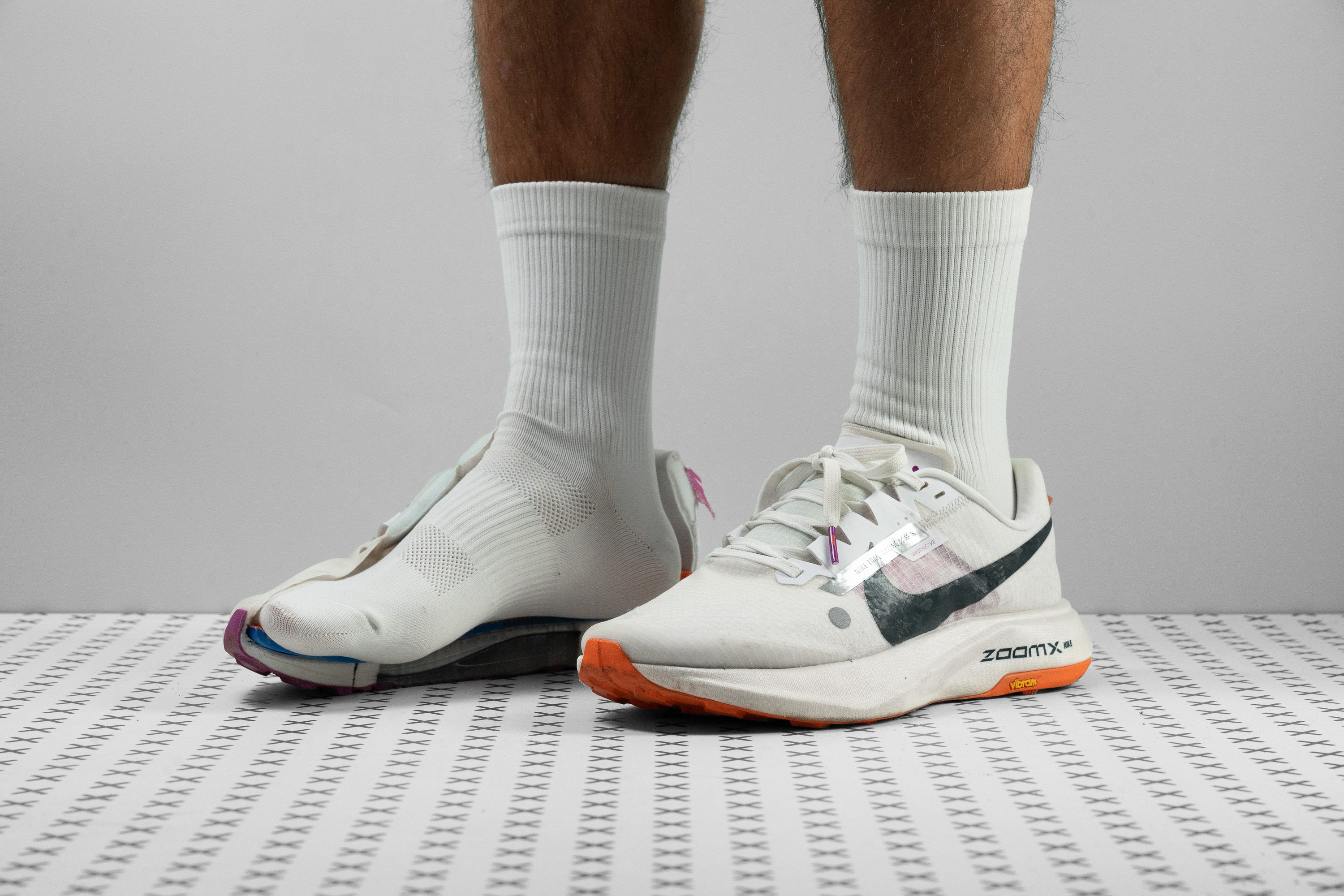



















































What makes it the best?
The Nike Ultrafly proved in our trail runs that it’s possible to be a comfortable high-performance shoe. Its combination of the responsive ZoomX midsole and a midfoot carbon plate resulted in unmatched energy return, making it our ultimate trail racing shoe for women. As icing on the cake, it features the confidence-inspiring Vibram outsole.
Our caliper reveals the 36.6 mm heel is one of the thickest we’ve measured for a trail shoe. It cushioned each landing gently and made long miles roll by. It offers a plush experience like no other, evidenced by its low 9.8 HA durometer reading. For context, that’s 57.2% softer than average. Women who want to feel isolated from the ground will enjoy this pair.
Surprisingly, Ultrafly doesn’t feel wobbly despite its cloudlike cushion. Our sliced midsole shows a forked carbon plate in the midfoot, which stabilizes and energizes the ride. We found it hard to twist the shoe with our hands, earning the highest 5/5 torsional rigidity rating.
The Vibram outsole helped us maintain control through speed corners and various terrains. Our durometer reveals it’s a soft 80.5 HC, which usually means better traction. It also includes 3.0 mm lugs that feel grippy without feeling too bulky for fast paces.
However, a drawback we found was the shoe’s heavy 10.5 oz (299g) build. Women seeking a light racer should check elsewhere.
Pros
- Optimized for trail races
- Accommodates wide feet with ease
- Full-length, responsive Pebax midsole
- Equipped with a Vibram Megagrip outsole
- Ideal for heel strikers
- Offers outstanding comfort
- Remarkably stable
- Suitable for 100-mile races
Cons
- The Vaporweave upper could be more durable and breathable
- Heavier than expected even for a trail racing shoe
- The $260 price tag might be steep for some
- Limited toebox height
Best women's trail running shoes for technical terrain
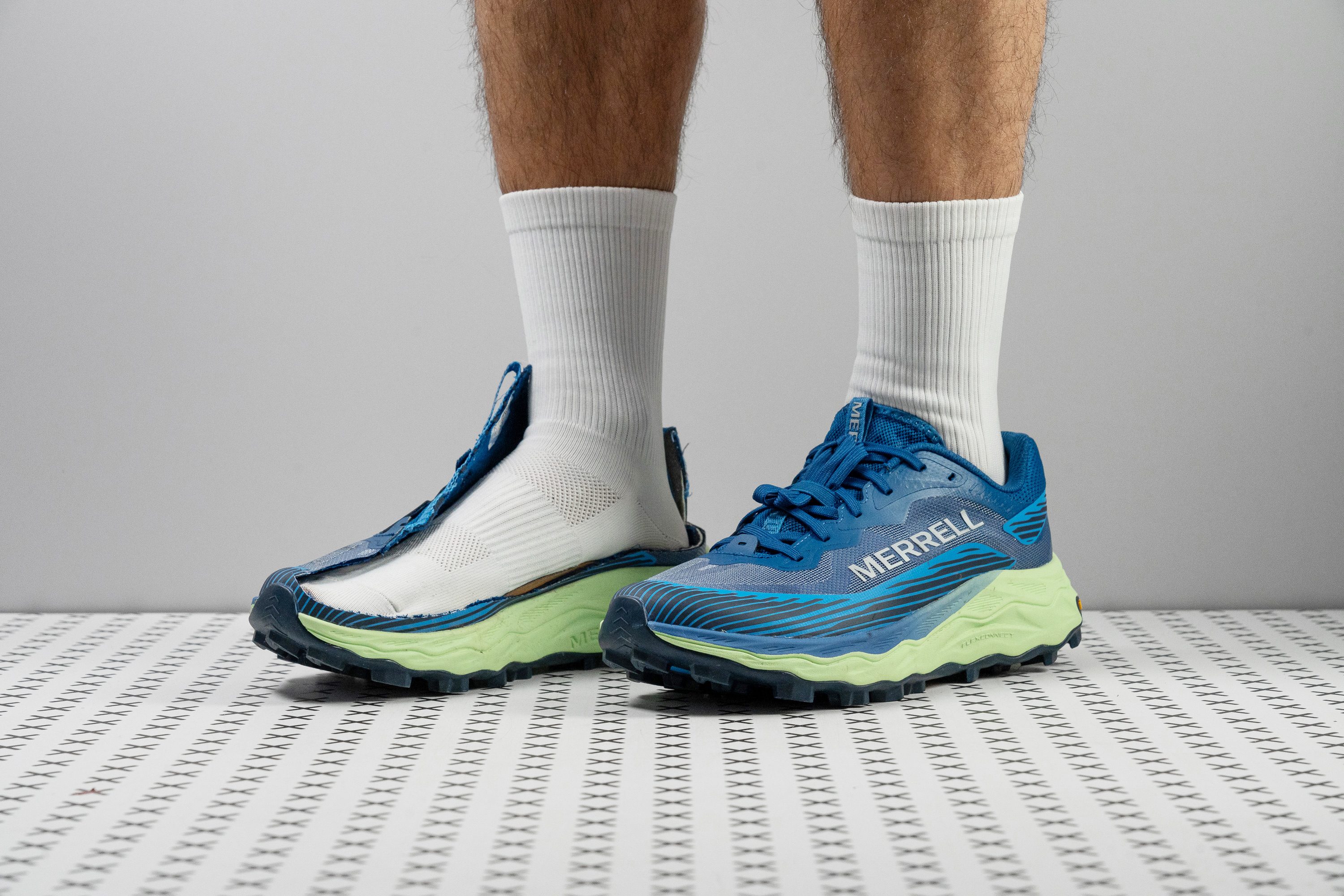

















































What makes it the best?
Whether on rocky alpine trails or muddy forests, the Merrell Agility Peak 6 continues to prove its expertise in challenging conditions and thus becomes our top pick for technical terrain among women’s trail shoes!
Its mighty Vibram Megagrip outsole features even deeper lugs (5.0 mm) and larger cutouts (FlexConnect grooves) to ensure grip on loose gravel, scree, and even deep mud. A high friction coefficient of 0.64 also helps it maintain traction on wet rocks, logs, and roots.
Slicing the shoe in half also reveals a large rock plate that extends from the midfoot to the toes, protecting the foot from sharp rocks and debris.
Even though our lab tests showed no significant upgrades to the Agility Peak 6’s cushioning, we were pleased with a familiar stable ride that we’ve come to expect from the series. The shoe’s high torsional rigidity still ensures excellent midfoot support while its extended base (115.5 mm in the forefoot and 97.7 mm in the heel) now covers slightly more area for surefootedness.
Pros
- Excellent Vibram outsole with Traction Lug tech
- Dependable for technical terrain
- Improved flexibility
- Secure fit
- Lighter than v5
- Good arch support
- Stable ride
- Upper mixes durability and ventilation
- Ideal for heel strikers
Cons
- FloatPro foam lacks energy return
- Narrow toebox limits toe splay
- Low shock absorption
- Misleading drop
Women's trail running shoes with the best shock absorption
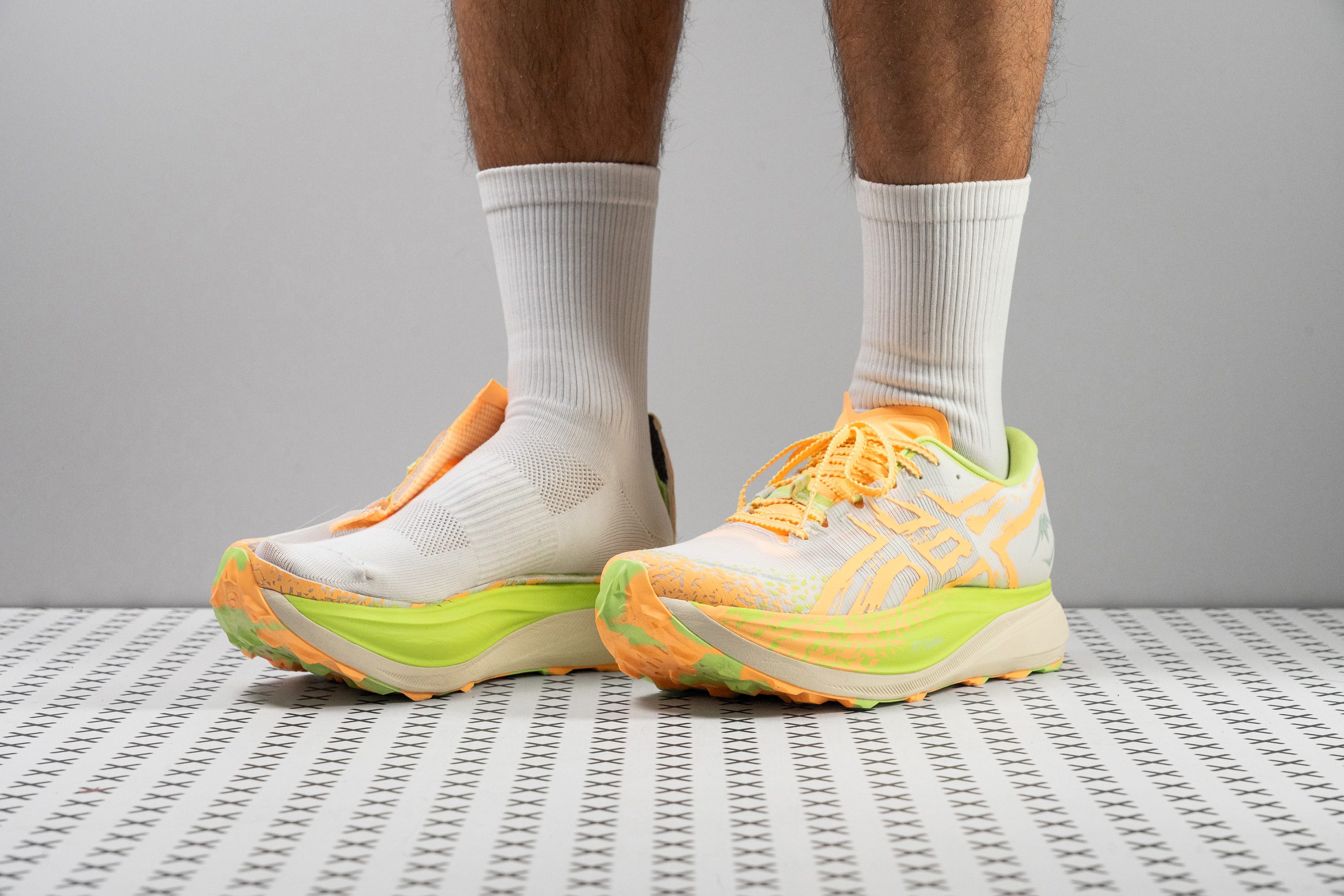
















































What makes it the best?
We experienced comfort to the max in our trail runs with the ASICS Metafuji Trail. In the lab, we found this version’s stack to have a luscious combination of height and softness without forgoing agility and controlled footing, making it our best shock-absorbing trail running shoe for women.
We had zero ground feel in this shoe, which makes it ideal for women who prefer plush comfort for long runs. We measured the stack with our caliper, and it measured a mountainous 44.7/34.4 mm. Testing for shock absorption, we recorded high figures of 153 SA in the heel and 122 SA in the forefoot, emphasizing its luxurious touch for all footstrikes.
Despite its generous cushioning, Metafuji Trail boosts our speed and slows down fatigue with its minimal 9.1 oz (258g) build. It’s unbelievable how it manages to shed off 10.7% the average trail running shoe’s weight with its maximalist height.
With ASICSGRIP rubber underfoot, we enjoyed confidence-inspiring traction. Our wet-condition test backs us up with a high 0.80 rating, making it 33.3% grippier than average. With shallow 2.7 mm lugs, we advise against using this pair in technical terrain where more aggressive traction is needed. Women who want to tackle more challenging trails should try alternatives.
Pros
- Exceptional shock absorption
- Amazing ASICSGRIP outsole
- High-end build quality
- Ideal for narrow feet
- Lightweight for a trail shoe
- Fast-rolling forefoot rocker
- Ideal for easy, flat-ish ultras
- Outstanding upper with top ventilation
- Record-breaking stack height
Cons
- FF Blast+ foam limits energy return
- Expensive
- Minimal stability
- Delicate upper prone to tearing
Best road-to-trail running shoes for women
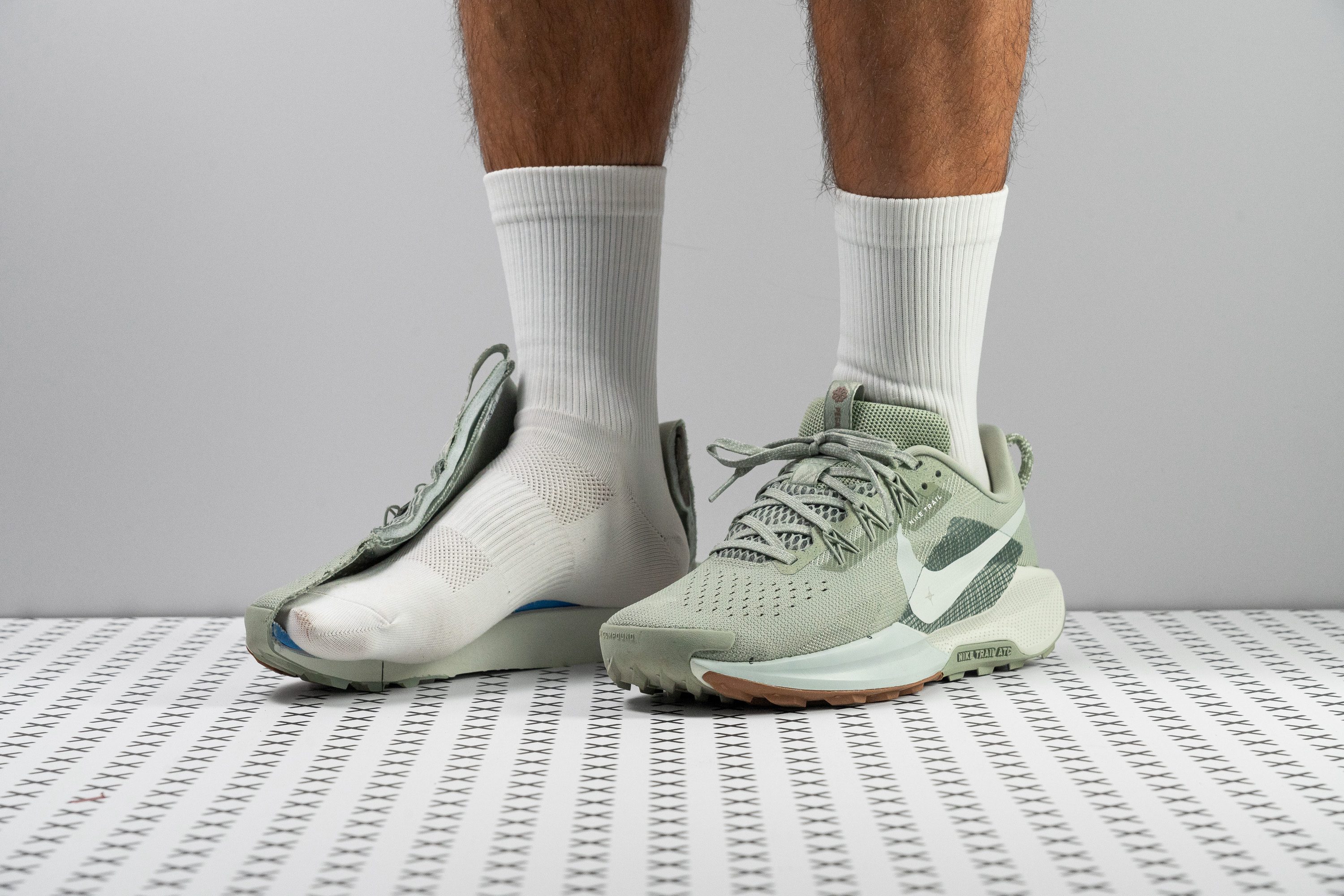























































What makes it the best?
We embarked on outdoor adventures without discomfort or worries in the Nike Pegasus Trail 5. From rugged terrain to urban streets, this Peg seamlessly combines a soft yet dynamic cushioning with a flexible midsole. Our lab tests also show its robust All-Terrain Compound outsole to be protective without being too overpowering, cementing its status as our top hybrid trail running shoe for women.
The ReactX foam softens each landing effectively and springs us off pleasantly with every toe-off. Our durometer shows it’s remarkably 51.5% softer than average, explaining the bounce we enjoyed with each stride.
We experienced smooth transitions from loose ground to tough cement thanks to the adaptive midsole. Our bend test validates it’s 29.0% more flexible than the average thanks to the intentional cutouts in the outsole. We find it highly suitable for women who enjoy a natural feel.
Underfoot, the ATC rubber proved its resilience with an 87.9 HC hardness and showed less damage vs. average in our abrasion test. Plus, it features an optimal depth of 3.2 mm lugs, delivering reliable traction on moderate trails without feeling too bulky on the road.
However, the midsole may feel too plush and unstable for the trails. Women seeking support and ground connection should stay away from this pair.
Pros
- Fully gusseted tongue
- Reflective elements
- Durable upper construction
- New rockered sole
- Great for heel strikers
- Reasonably priced
- All-around comfort
Cons
- Weight increase
- Possibly too plush for trails
- Still lacks traction
Best budget trail running shoes for women
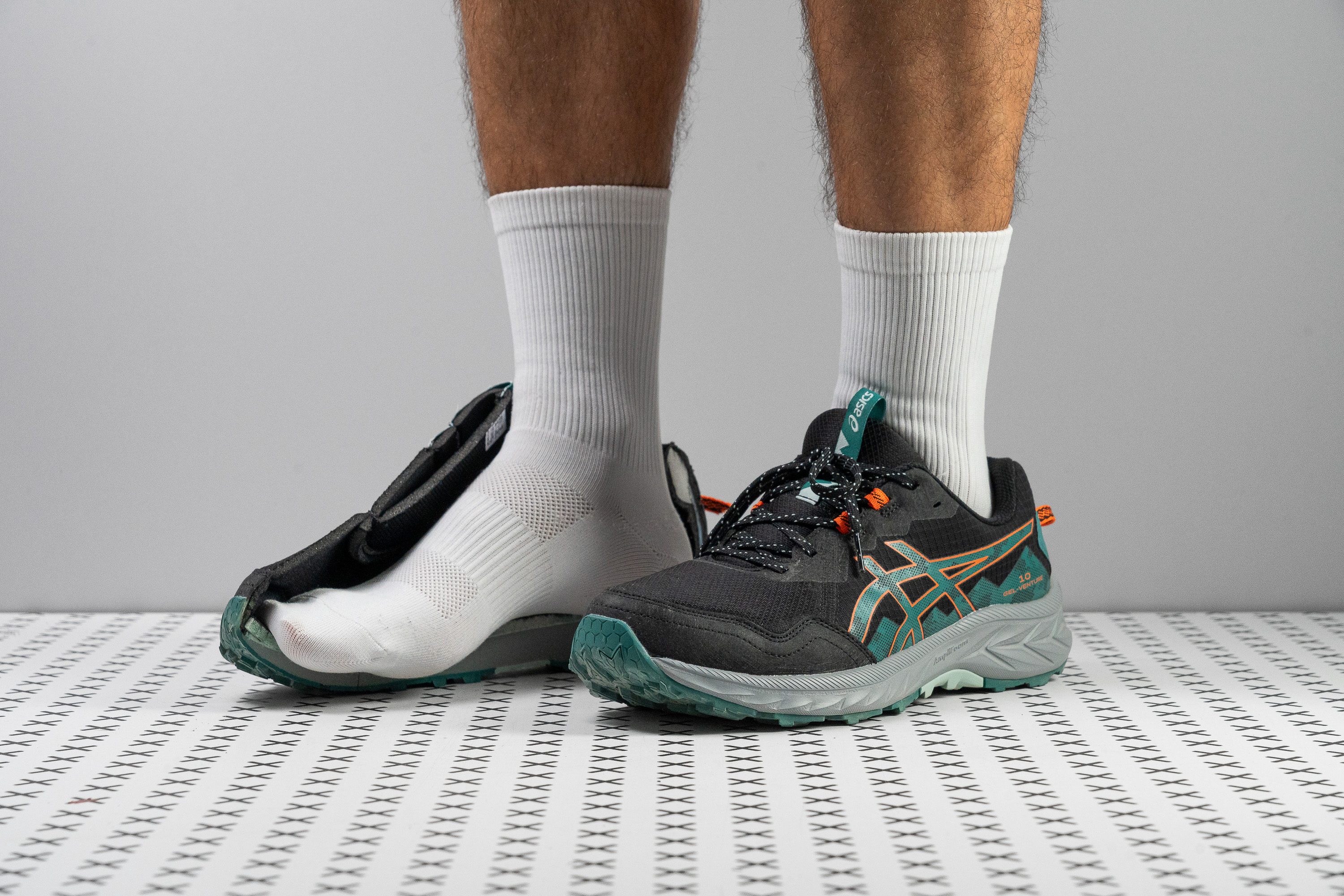











































What makes it the best?
We couldn’t believe we could enjoy a trail shoe for only $80! Our lab tests confirm the comfort we experienced through the ASICS Gel Venture 10’s flexible midsole and breathable upper. Meanwhile, the outsole offers the perfect mix of control and durability. With its massive 45.9% discount vs. the average, it’s our best budget women’s trail running shoe.
Moving through unpredictable terrain feels effortless as the shoe bends easily with our feet. Our flex test confirms it’s 10.6% more agreeable than the average trail shoe.
We also felt that the 3.7 mm lugs were grippy and versatile enough for hikes and speed runs, perfect for women seeking an all-rounder trainer. It also stood out in our Dremel test with exceptional wear resistance, showing 33.3% less damage than the average.
Gel Venture 10 offers a refreshing feel, allowing much-needed airflow. A steady stream of smoke escaped in our breathability test, earning it a remarkable 4/5 rating. We expected the mesh to fall apart under our Dremel, but it resisted and earned a remarkable 4/5 durability score.
However, the moderate stack falls short in shock absorption. Runners seeking maximum muscle protection should find a more cushioned trainer.
Pros
- Fantastic durability
- Amazing value
- Ideal for beginners
- Softer Amplifoam midsole
- Versatile for trail, travel, casual wear...
- Improved upper
- Plush tongue with pressure-free lacing
- Trail-inspired details at budget price
Cons
- Only for narrow feet
- Heavy
- Low shock absorption and energy return
How are women’s trail shoes different from men’s
In a perfect world, all women’s trail shoes would be made based on special women’s lasts and there would be more fit-related options. We don’t live in a perfect world so, often, we have men’s shoes in women’s sizes. Or, somewhat narrower shoes than men’s but otherwise the same. An even bigger issue is that it is usually the upper that is made wider/narrower and not the platform itself.
Regardless, here’s how the women’s trail running shoes are usually different from men’s:
- Sizes. Women’s feet are smaller on average, so women’s trail shoes start at smaller sizes than men’s.
- Industry labels for different widths of shoes.
- Stack heights and heel drops are sometimes (although rarely) different in women’s versions.
- Width. But there’s no rule here. Some models are made narrower, others just the same as men’s. This is easy to compare when women’s shoes are bought in sizes that exist for men as well (for example EU 41 which is the same in men’s and women’s so no conversion is needed).
- Colorways. Quite obvious, but many brands release different colorways for women.
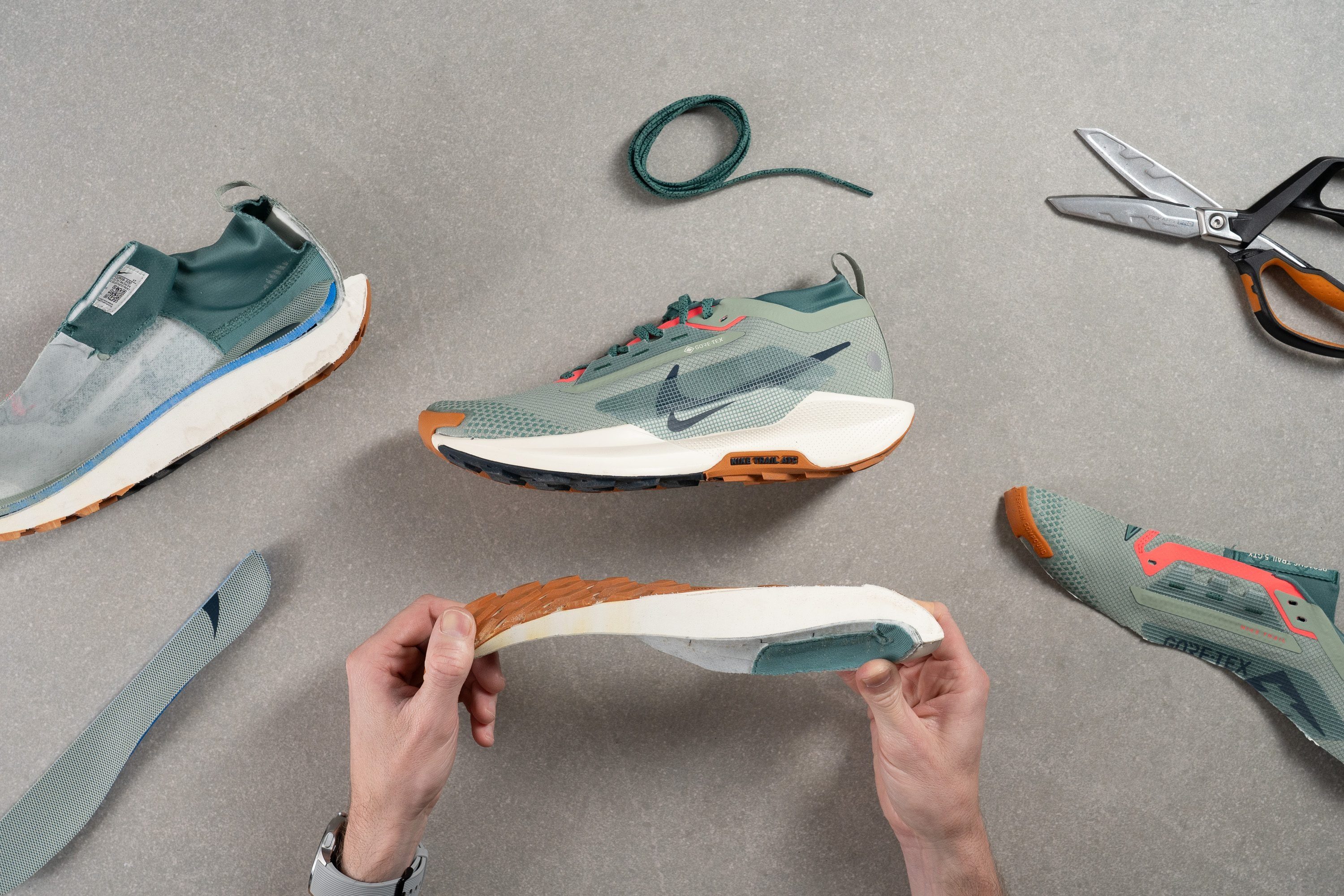
Sizing in women’s trail running shoes
If you’re not sure about your size, we always recommend measuring the length of your feet! Then, it’s easy to find the size in our tool.
Also, some shoes are released as unisex. Often, brands indicate both women’s and men’s sizes at the same time, but some brands only use one size. In that case, we recommend referring to the length of your feet in centimeters to nail the size.
Width of the shoe: different industry labels
Men’s and women’s trail running shoes do not have the same industry labels for different widths. Here’s a comparison below.
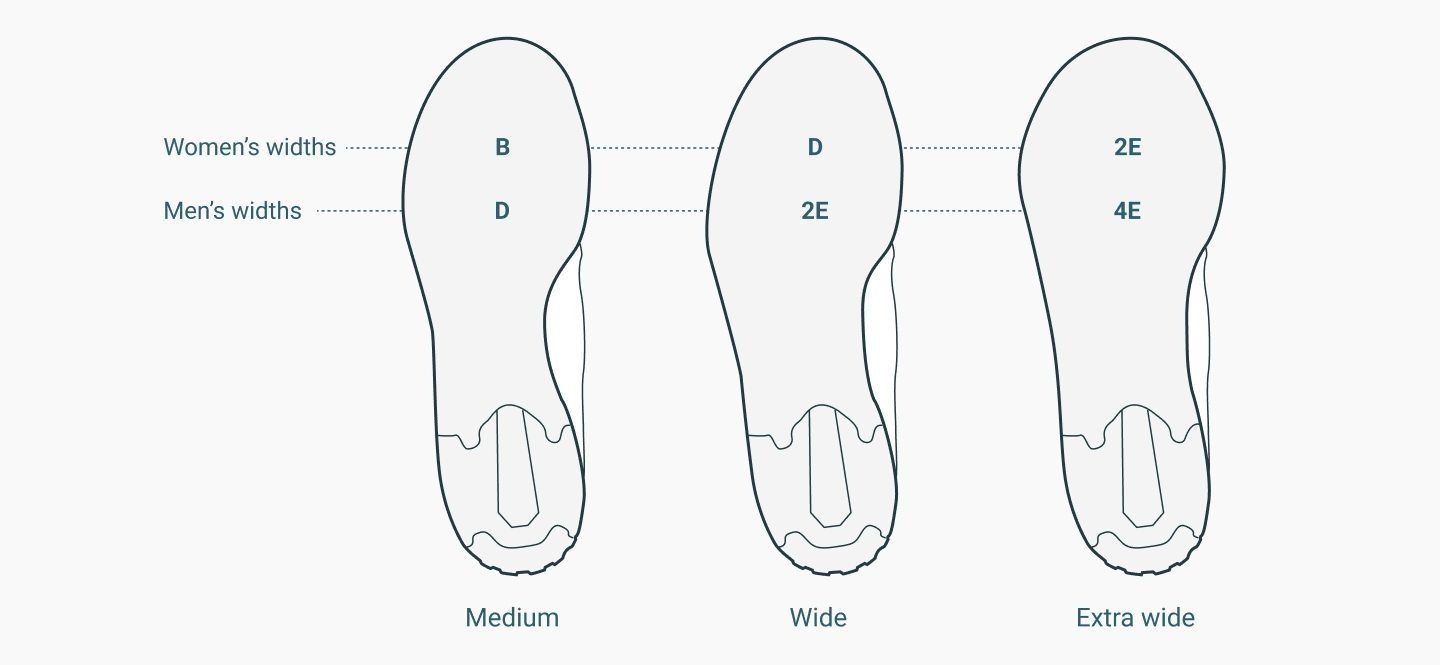
However, not all shoes are released in Narrow, Wide or Extra Wide options.
5 things to take into account when choosing trail running shoes for women
Here are 5 features we suggest understanding and taking into account when looking for a new pair of trail running shoes:
- Terrain. You might be running on dry and loose ground, hard-packed trails, or mud and grass. Different surface conditions ask for different lugs and levels of protection.
- Season. Very hot weather asks for very breathable uppers, while very cold weather asks for warm uppers. If you decide to run in wet weather, waterproof trail running shoes might be a good idea.
- Distance and pace. You don’t need the same amount of cushioning when running 2km on average and when running an ultra of, say, 65km. The same applies to the pace, race shoes are aggressive, lightweight, and responsive, while daily trainers and recovery shoes tend to be padded, cushioned, and comfortable.
- Stability due to overpronation or overall.
- Good toebox width, whether wide, medium, or narrow.
How demanding is the terrain you plan to run on?
Knowing the type of surface you will be running on is a priority because it dictates the grip and the overall shoe design. We group trail running shoes in 3 different categories based on the terrain:
- Light terrain: easy trails usually used by beginners, well-maintained trails in (national) parks, dry hard-packed trails, and asphalt (hybrid shoes or road-to-trail shoes are used in these cases when there’s a mix of road and trail on the run).
- Moderate terrain: varying terrain with somewhat steep uphills and downhills, and occasional difficult (e.g. rocky) sections.
- Technical terrain: demanding terrain with a lot of steep sections and/or rocks, mud, slush, debris, roots, etc.
What the terrain has to do with trail running shoe features? Look at our table below:
|
Feature\Terrain |
Light |
Moderate |
Technical |
|
Lugs |
Shallow Usually around 2 mm; shallower than 3 mm |
Average 3-4 mm |
Very deep Deeper than 4 mm |
|
Protection |
Often have no protection |
May have a thick/large toe bumper and a rock plate |
Often have a thick/large toe bumper and may have a rock plate |
|
Flexibility |
Usually flexible |
Can be flexible or stiff |
Usually stiff |
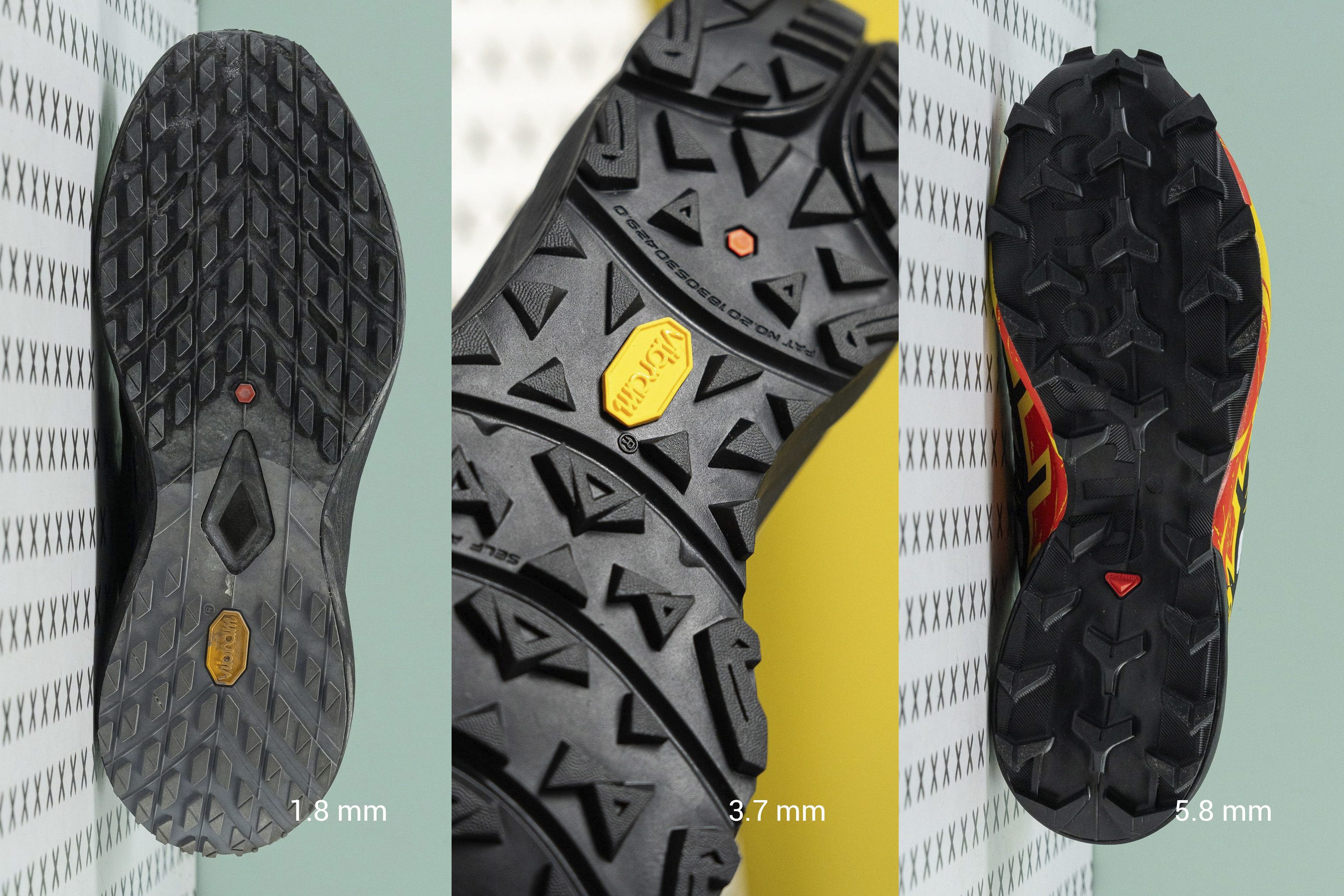
As seen in the table, to decide whether a trail shoe is best for women who plan to run on light, moderate, or technical terrain, we take into account many factors, not just lug depth for example. Also, many trail running shoes are versatile and can be used on light and moderate, or moderate and technical terrain.
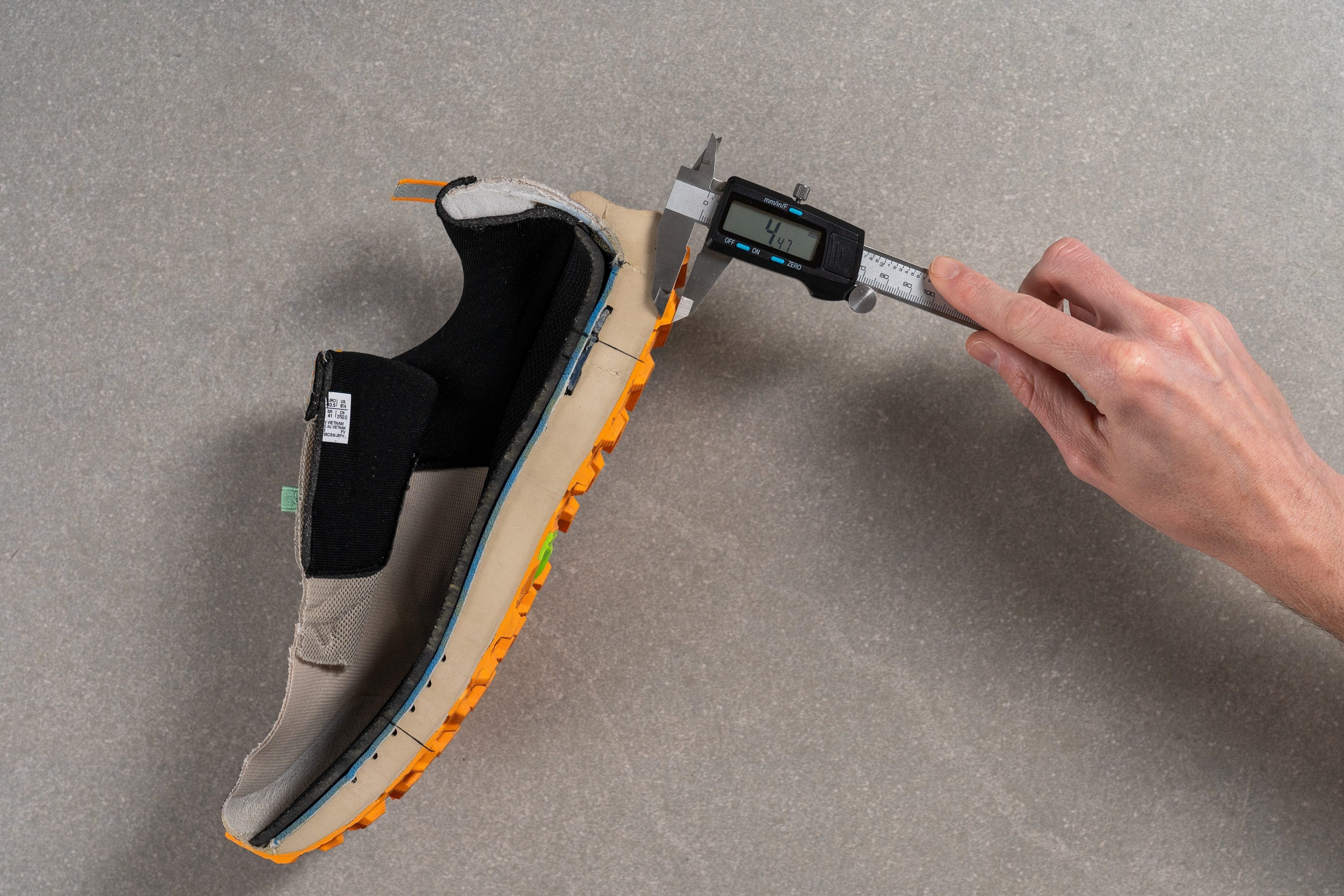
If the lugs on your running shoes are very thick and you use them on asphalt, your feet will hurt and the lugs will be worn down prematurely. On the other hand, if you try running on technical terrain in shoes with shallow lugs, you’re risking getting injured as you will slip, slide, or get stuck in mud.
One of the factors we take into account is protection. Trail running shoes can have toe bumpers, sock-like heel collars to prevent debris from getting into the shoe, gaiter attachments for easier gaiter lockdown, hard outsole rubber that can’t be poked easily, and so on.
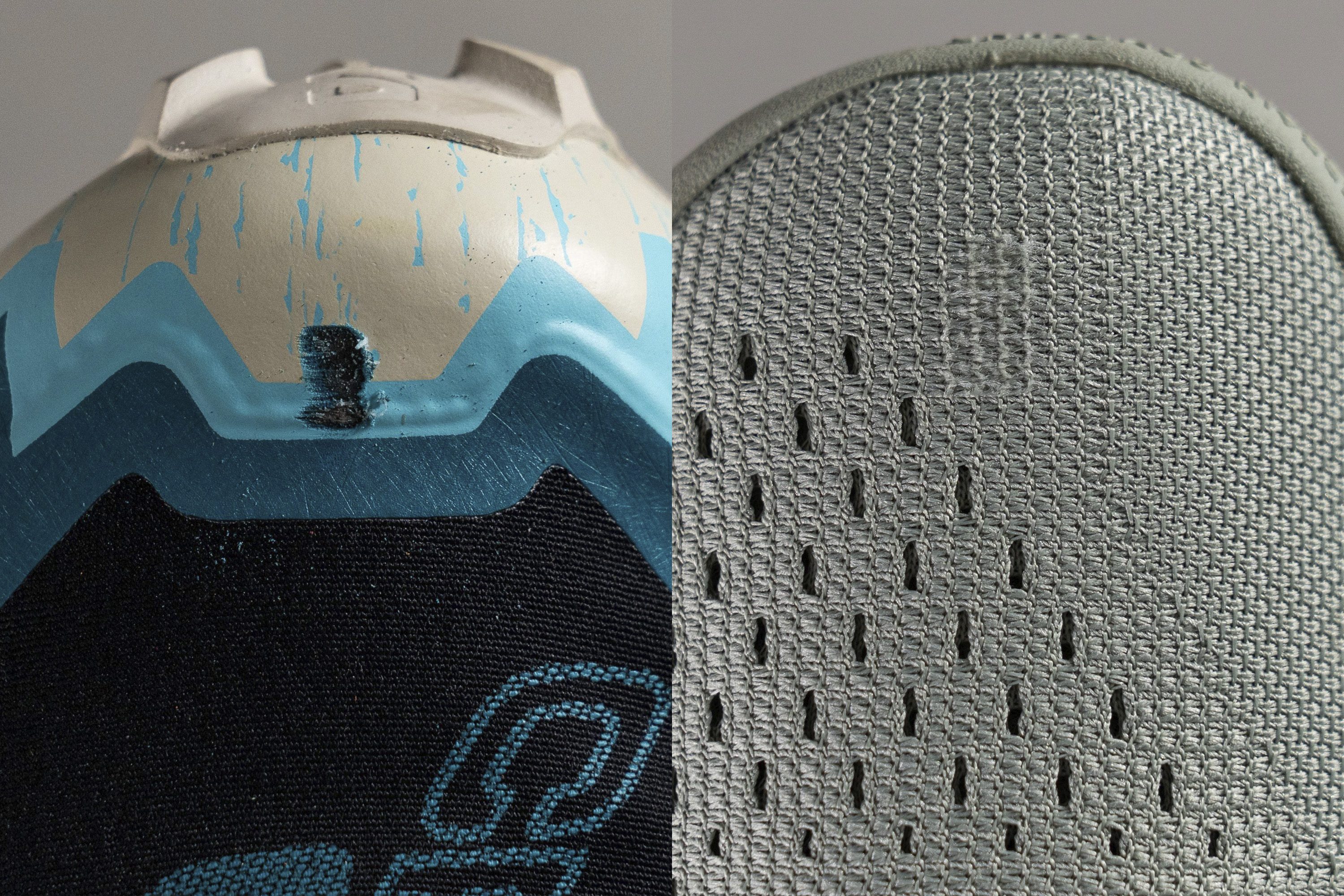
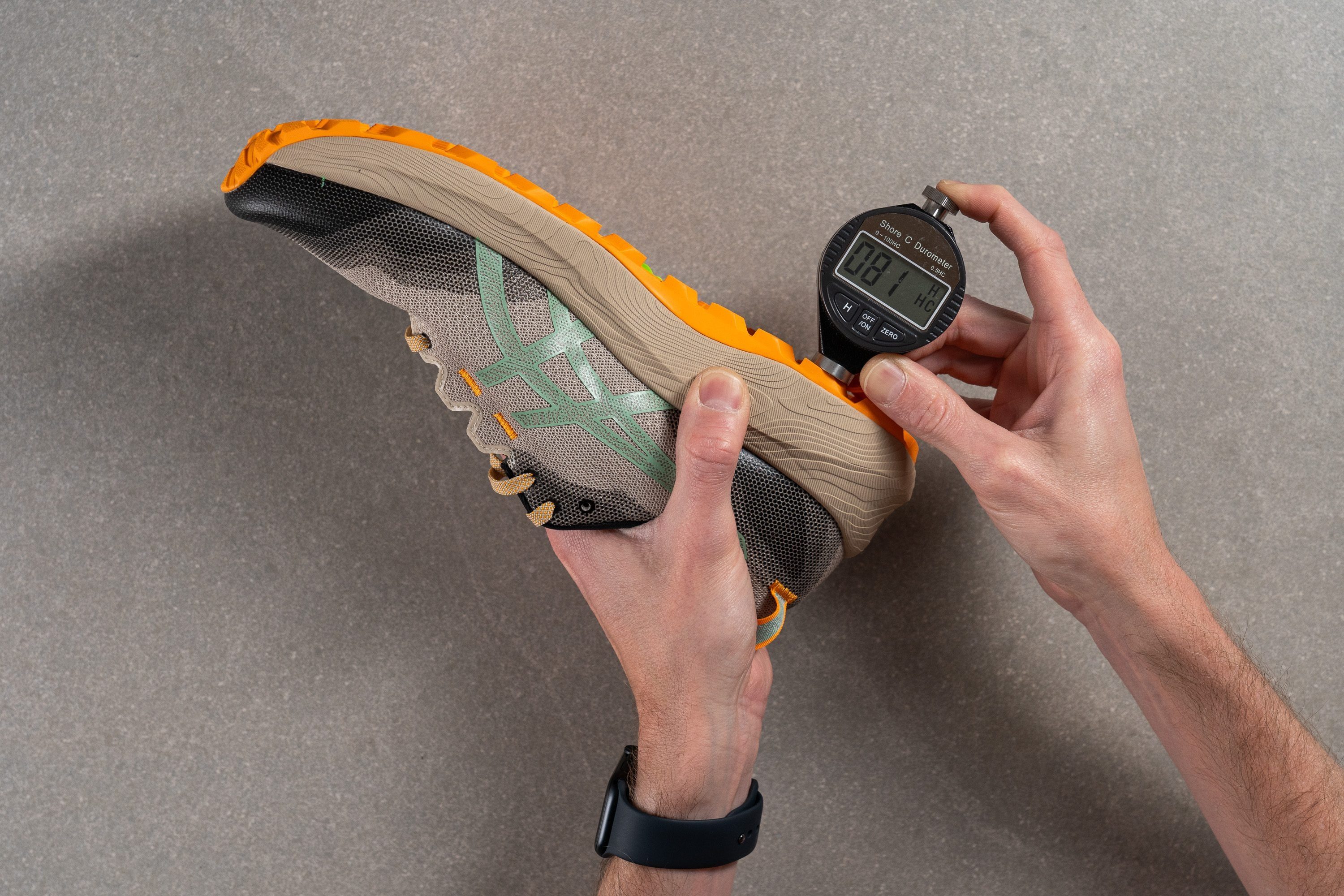
Different uppers for different seasons: breathability of trail running shoes for women
Running in very hot weather, in very cold weather, and in wet weather, all of these occasions ask for a different upper. In this case, we’re talking about breathability and waterproofness.
Assessing the breathability in RunRepeat lab using a smoke machine and 3D-printed shoe lasts with open toeboxes that direct the smoke
We assess breathability on a 1-5 scale. Each rating is based on how much smoke got out through the toebox and how fast. A 5/5 rating goes to the most breathable trail running shoes and a 1/5 to the warmest.
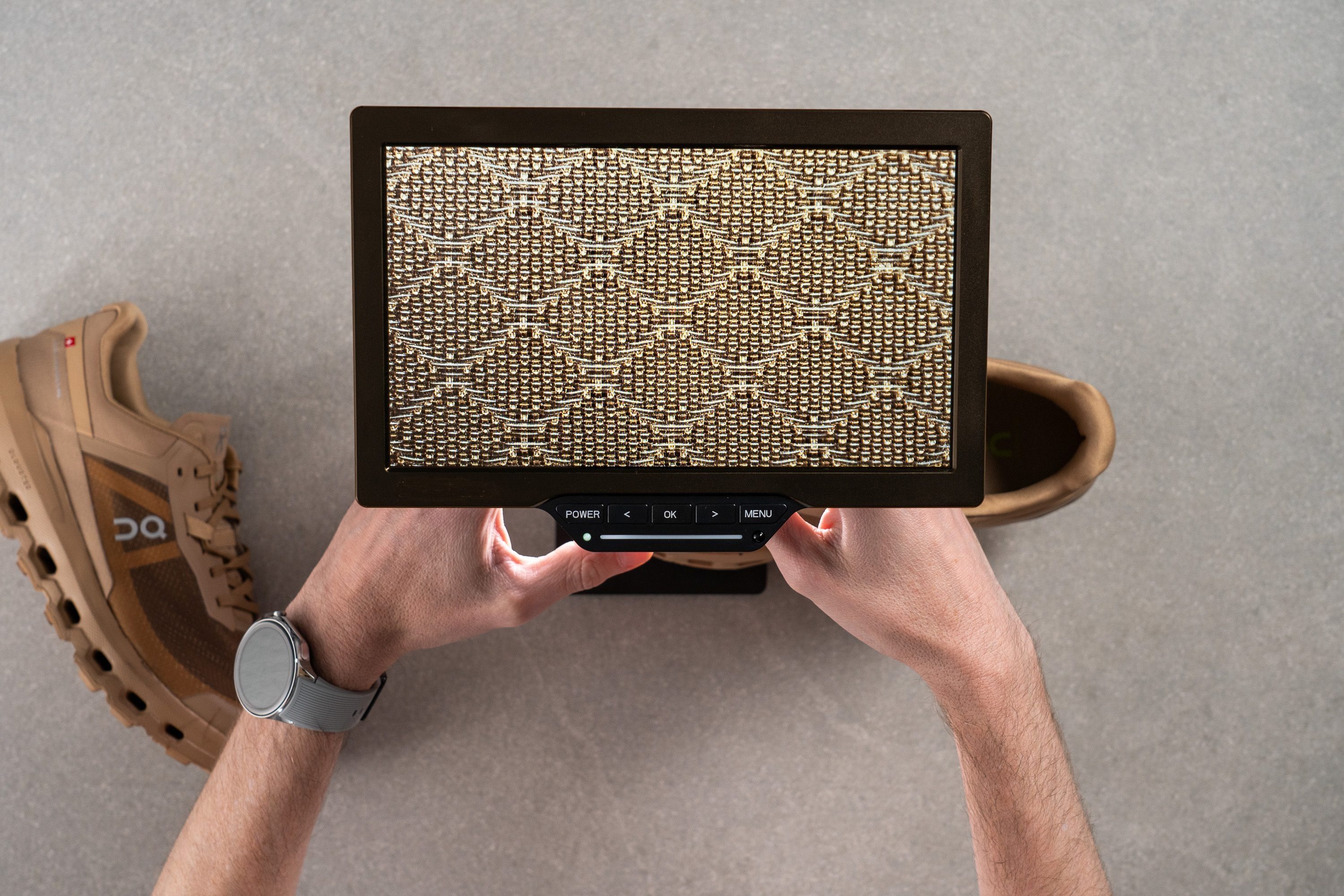
We also examine the uppers under a microscope, which gives us better insight into why some uppers breathe better than others.
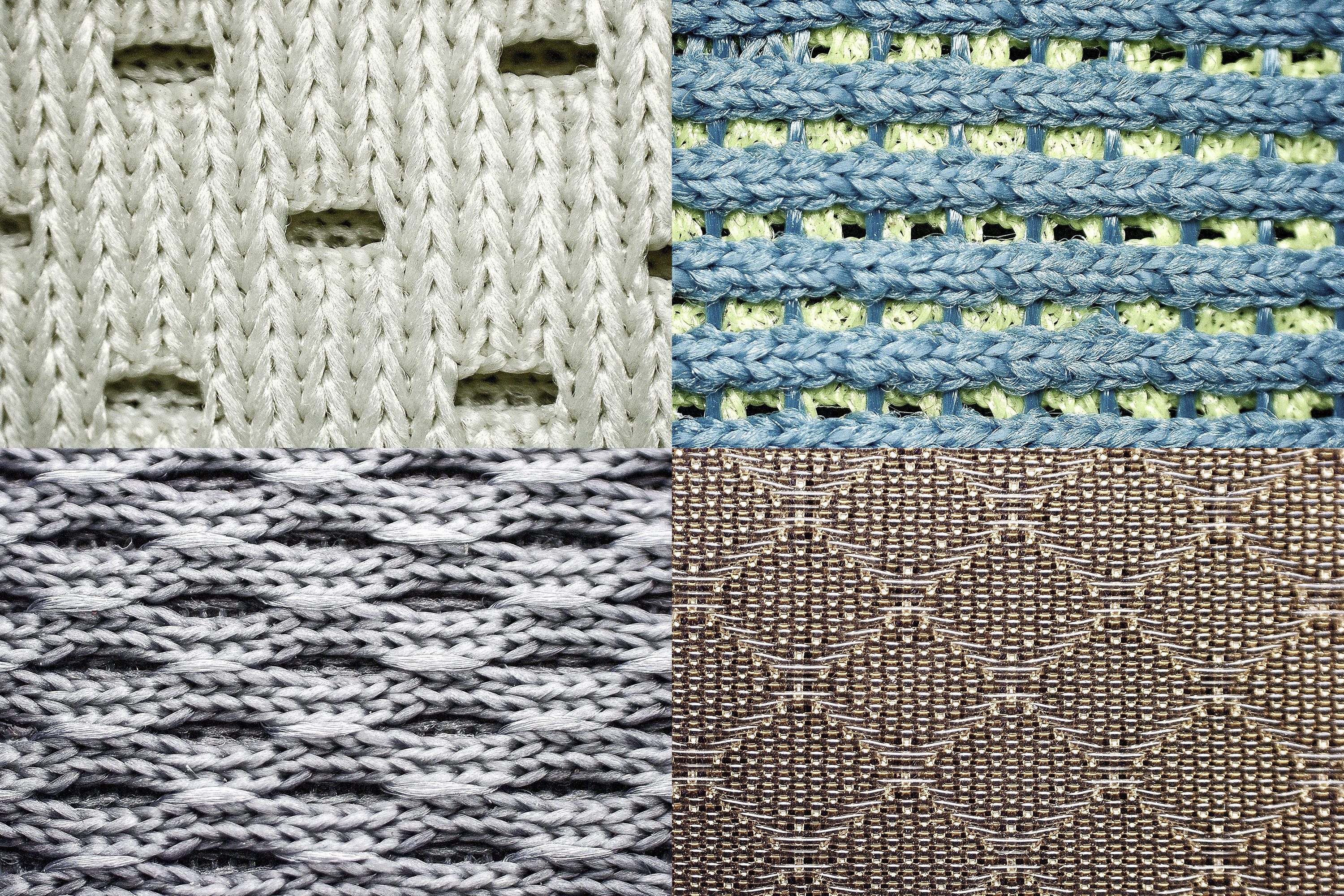
Very breathable uppers have a loose weaving pattern or large ventilation holes, while warm uppers tend to be tightly packed with no vent holes. We suggest running in warm trail shoes (1/5 breathability rating) in winter, although you can run in more breathable shoes as well, although with thick socks.
And, in case you plan to run in very wet weather, you can choose waterproof trail running shoes. These shoes have a waterproof membrane which prevents the water from getting into your shoes. On the shoes and the shoe box, you can find the words Waterproof, WP, or GTX (Gore-Tex). GTX is the most popular waterproof membrane and it is widely used in different outdoor applications, not just footwear.
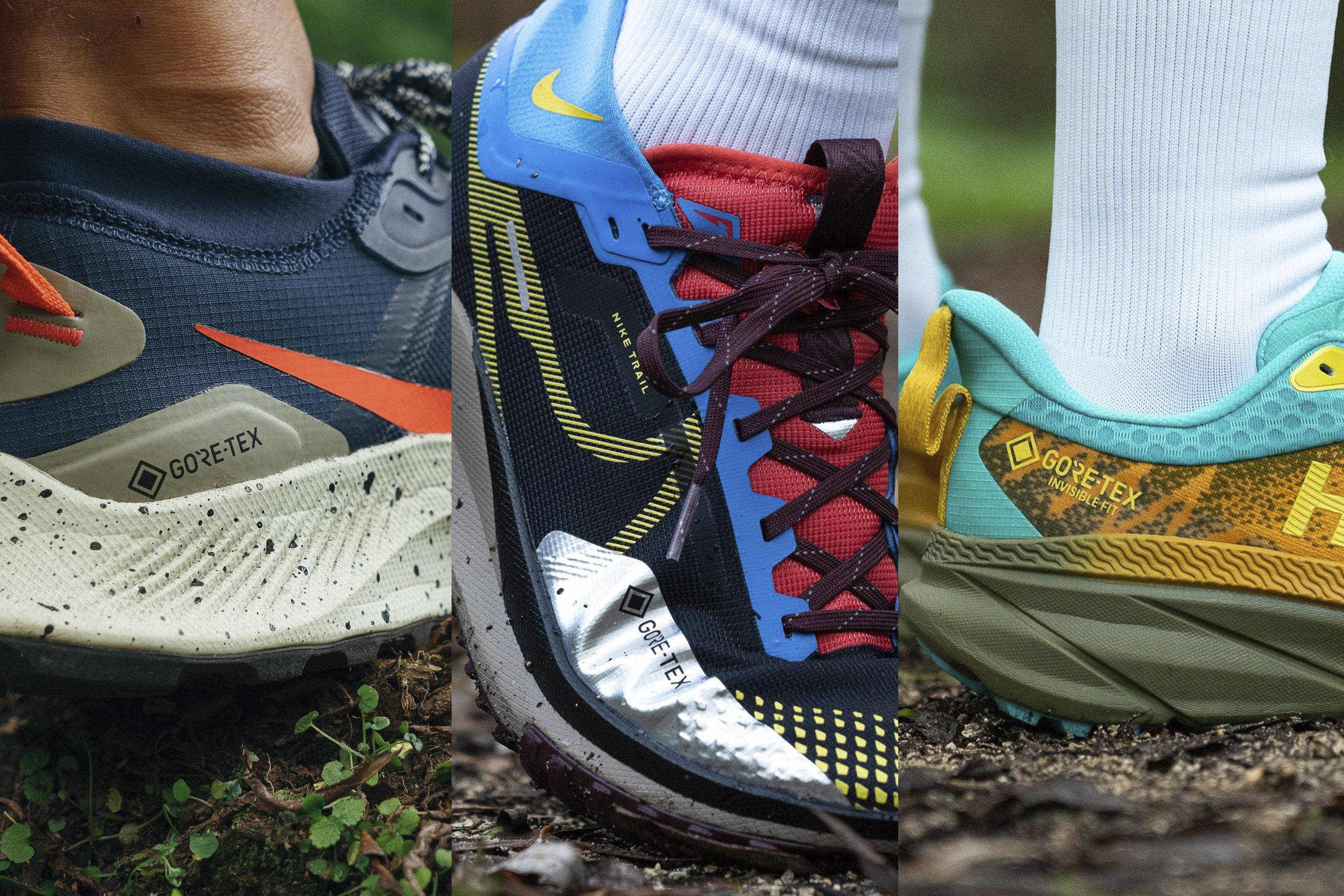
Of course, there are other waterproof membranes developed by different brands. In any case, the brands do not miss the opportunity to highlight the waterproof feature.
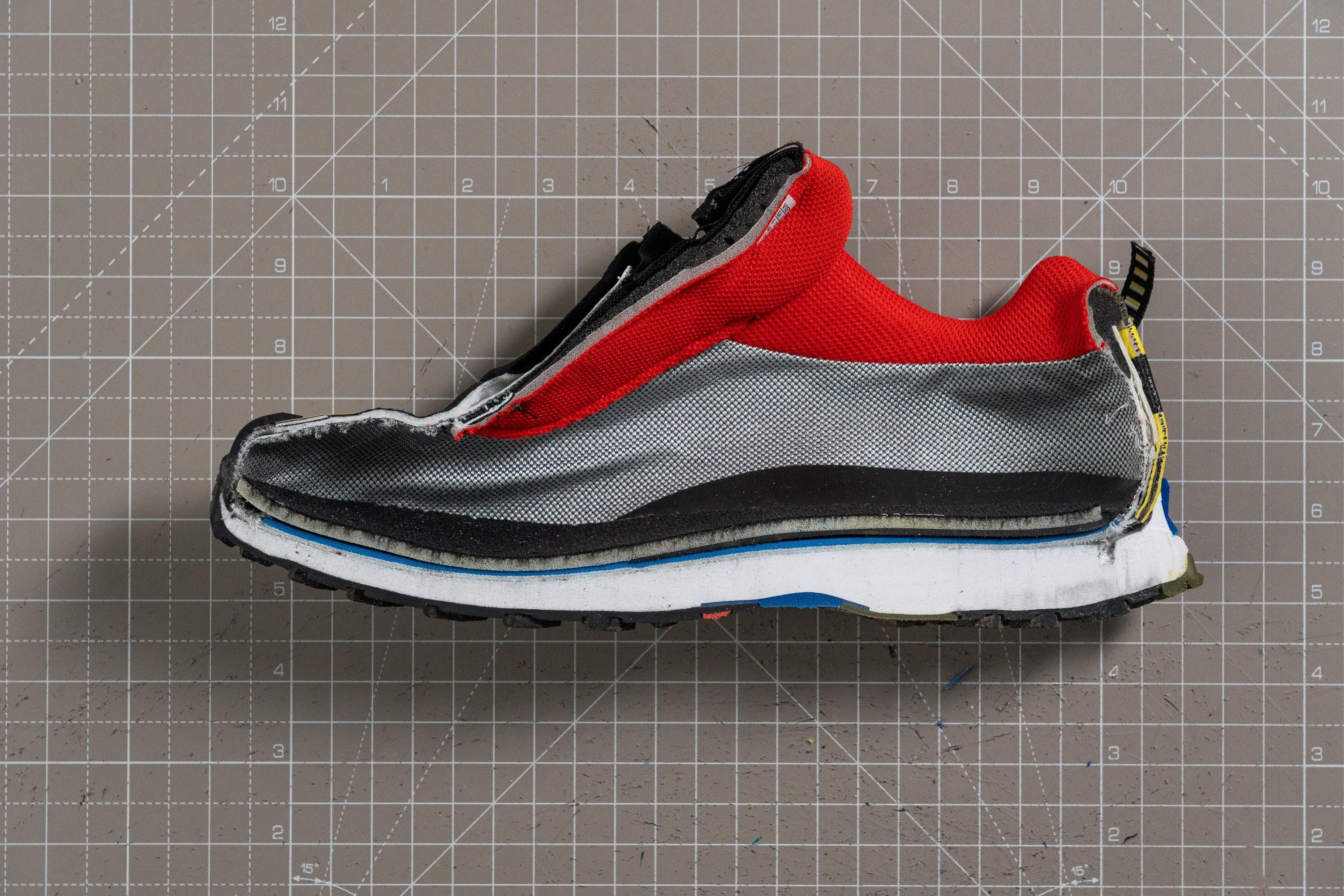
|
When you should get waterproof trail running shoes |
When you should NOT get waterproof trail running shoes |
|
You plan to run in wet weather often |
There will be only a few puddles on your runs |
|
You don’t mind the extra warmth as these shoes are not breathable |
It might rain lightly and occasionally on your runs. Better not to sacrifice breathability for waterproofness |
|
You plan to run in wet and cold weather |
If the conditions are not serious, we recommend breathable shoes because even if they get somewhat wet, they will dry out fast |
Keep in mind: once the water gets into the waterproof shoes, it is not getting out. To be on the safe side, we also recommend wearing waterproof gaiters, to prevent the water from sliding down your legs or trousers (or any other source) and into the shoes.
How are distance and pace reflected on trail shoe features?
When talking about distances, we have:
- Very short distances, usually run by beginners
- Shorter distances, like 5k and 10k
- 21k and 42k
- And ultras, everything above 42 km
The main feature that changes here is the cushioning. But other features follow (see the table below).
|
Short distance |
Long distance |
|
|
Slow pace |
Made for beginners and jogging |
Very cushioned |
|
Fast pace |
Lower to the ground |
Very cushioned |
There is, of course, a lot of overlap here. Many shoes can be used both for shorter and mid distances, and many are versatile enough so that you can jog in them but also pick up the pace.
Stack height and heel drop of women’s trail shoes
When it comes to stack height, anything’s possible from barefoot and minimalist trail running shoes to maximally cushioned ones. Trail shoes that are lower to the ground allow for a better ground feel, while those that are higher off the ground offer more impact protection.
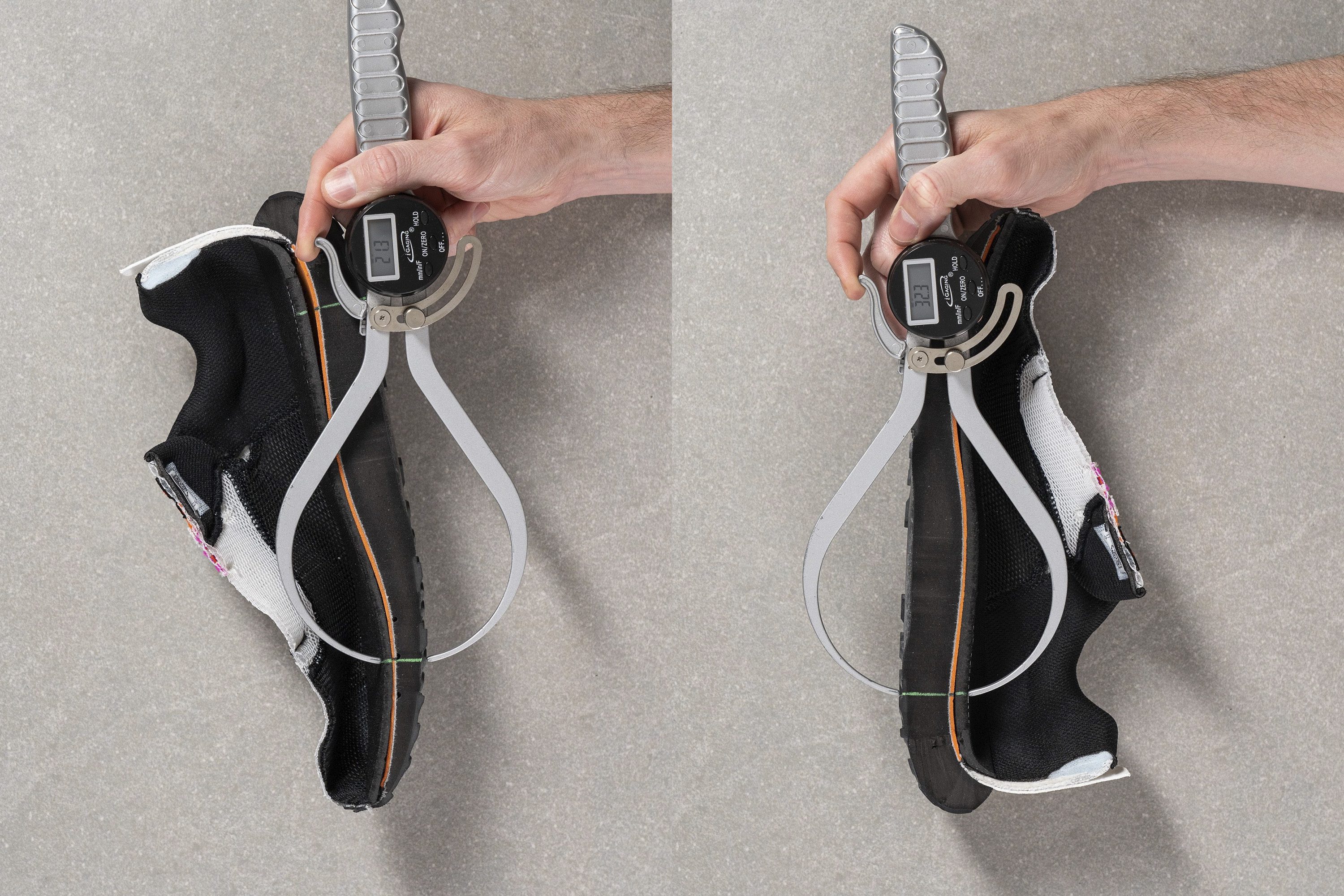
We subtract the forefoot stack height from the heel stack height and get a heel-to-toe drop (the difference in height between the forefoot and the heel). In trail shoes made for longer distances, heel drop is often higher because as we get tired after dozens of kilometers, our muscles also get tired and we start heel striking. Landing on more than less cushioning helps with support, stability, and comfort. Some ultra runners even change trail shoes mid-race to get to those with a higher drop as their mileage increases.
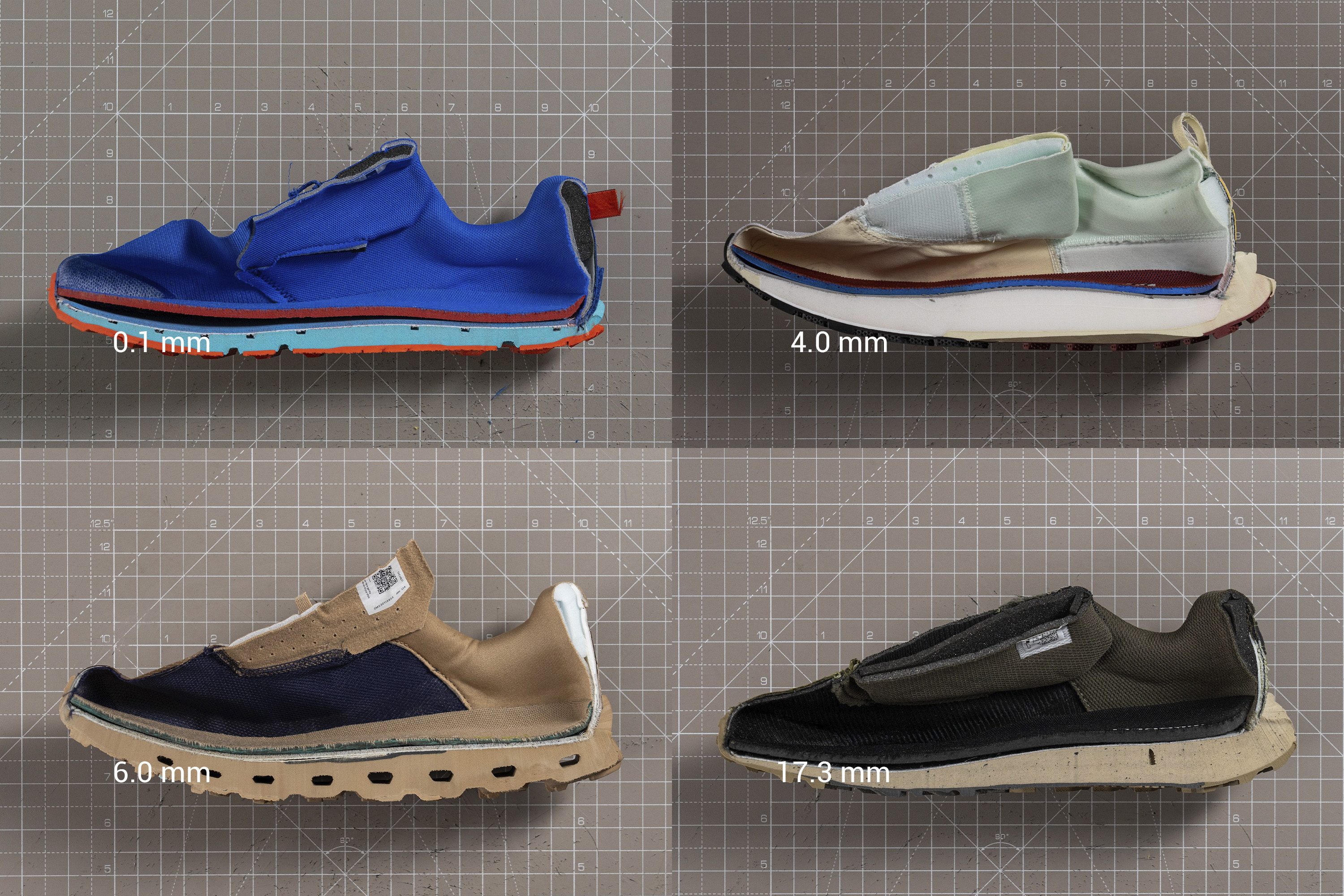
Heel-to-toe drop is an important factor. On average, it is lower in trail shoes (7.6 mm) than in road shoes (8.6 mm). But it’s important to understand all the effects it has on runners' muscles and legs. If you’d like to learn more about that, we went down the rabbit hole in this guide: Heel to Toe Drop: The Ultimate Guide.
Softness of women’s trail shoes
Just because some trail shoes are high off the ground does not guarantee that they are super soft, and vice versa.
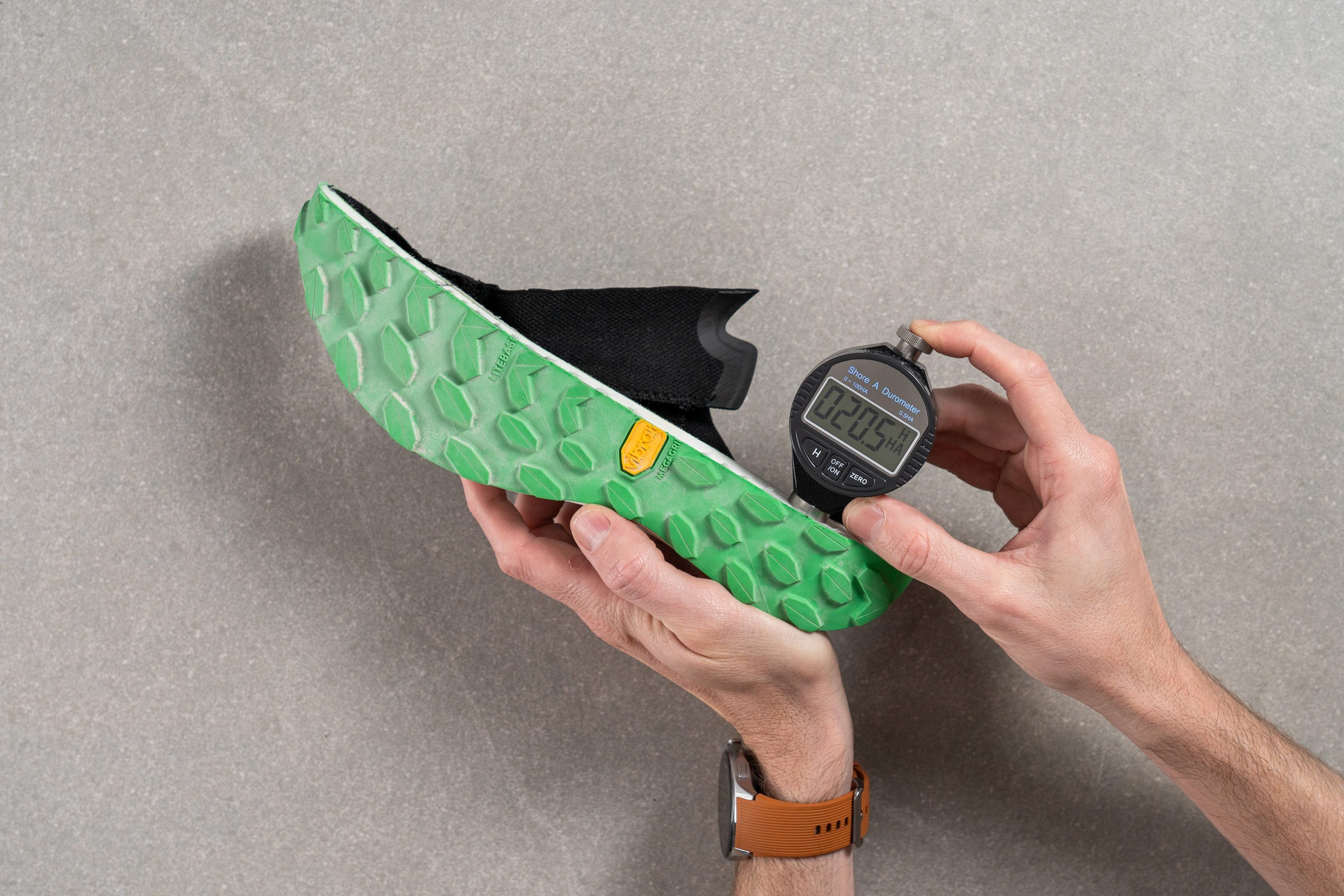
Looking at our durometer readings, lower numbers indicate a softer foam, while higher numbers indicate a firmer foam. While soft usually means comfortable, shoes can also be too soft to the point of being dull, as in no energy return. Such shoes tire our feet prematurely.
On the other hand, too firm and you might experience discomfort. It’s about finding the balance that works for you.
Weight of women’s trail shoes
A few years back, the rule of chunkier shoes = heavier shoes was applied. However, with the rise of premium foams, this is no longer the case. Premium foams are lighter, more responsive, more expensive, and less durable. On the other hand, standard foams are more durable and far more affordable, but with less energy return.
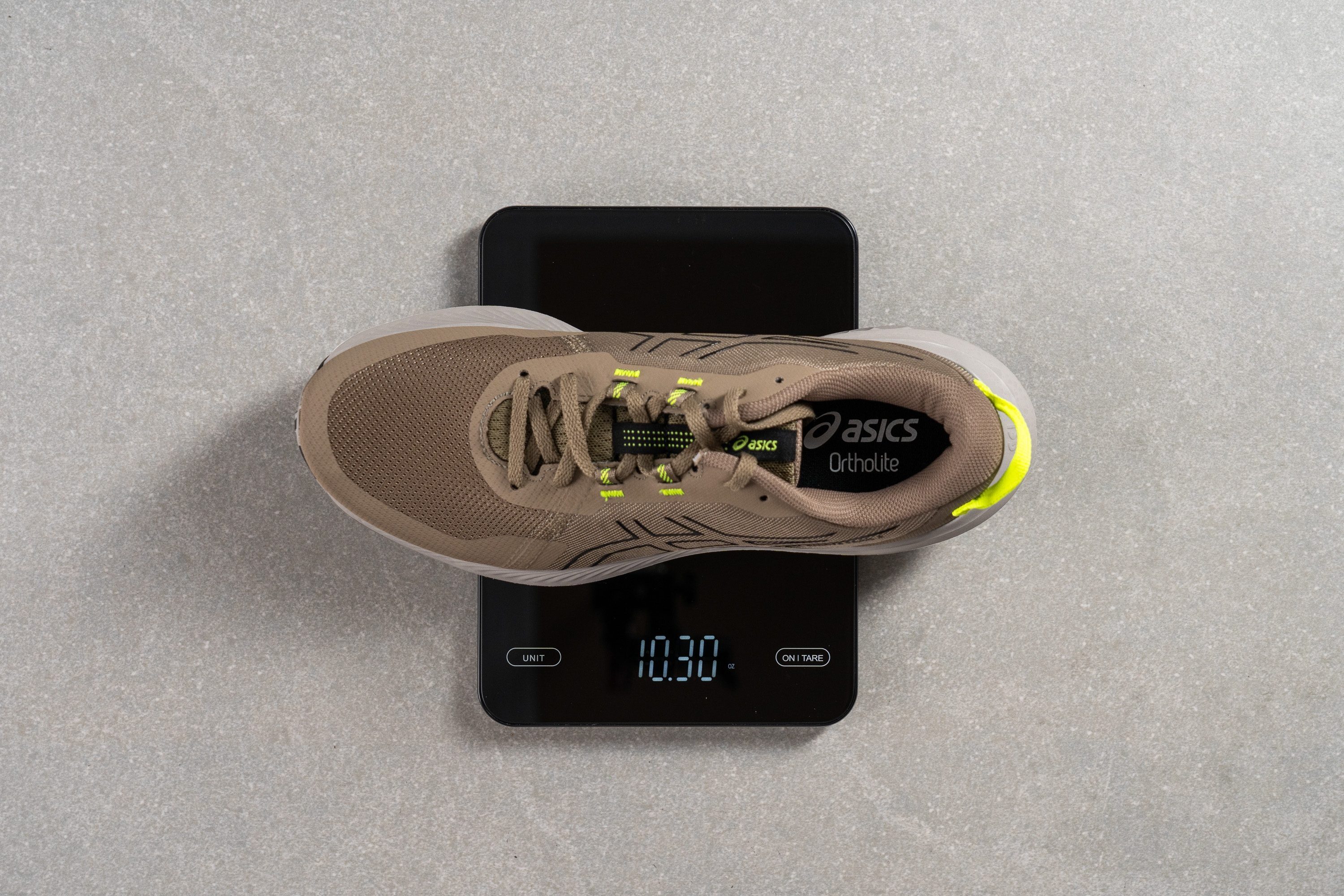
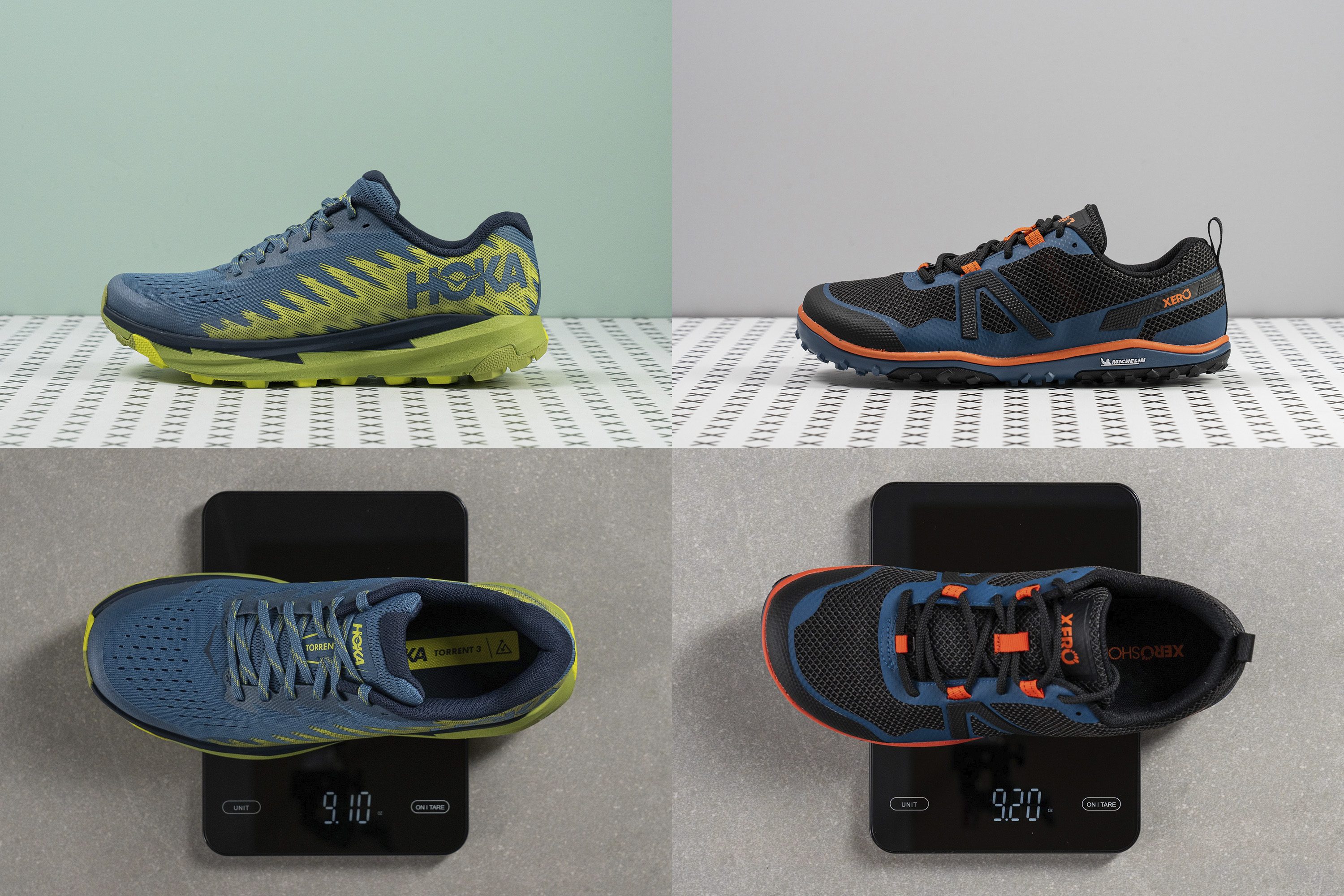
Carbon-plated trail running shoes for women
A carbon-fiber plate is usually found in race shoes.
Carbon-fiber plate cut out from a shoe in RunRepeat lab
These plates make the running shoes stiffer and more responsive. The ride is fast and smooth! The plates’ biggest benefits are experienced when they are combined with premium foams. However, they are not always the best choice, especially for beginners.
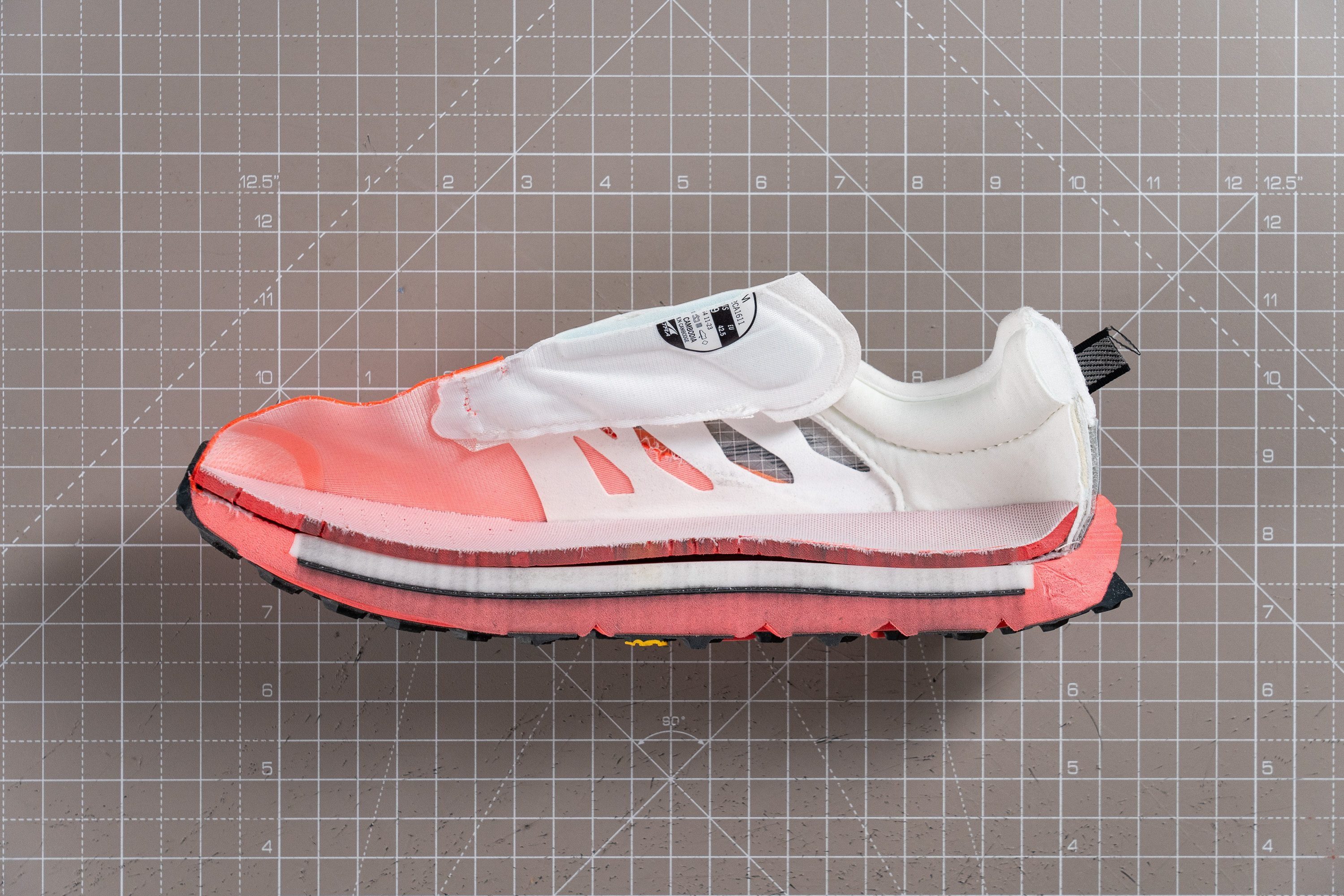
We don’t recommend these shoes to women who prefer slower to moderate paces, beginners, and those on a budget.
Arch support and stability in women’s trail running shoes
As you may already know, women with flat feet and who overpronate usually need stability running shoes. These shoes have special technologies that stabilize the heel and reduce the inward rolling of the ankle.
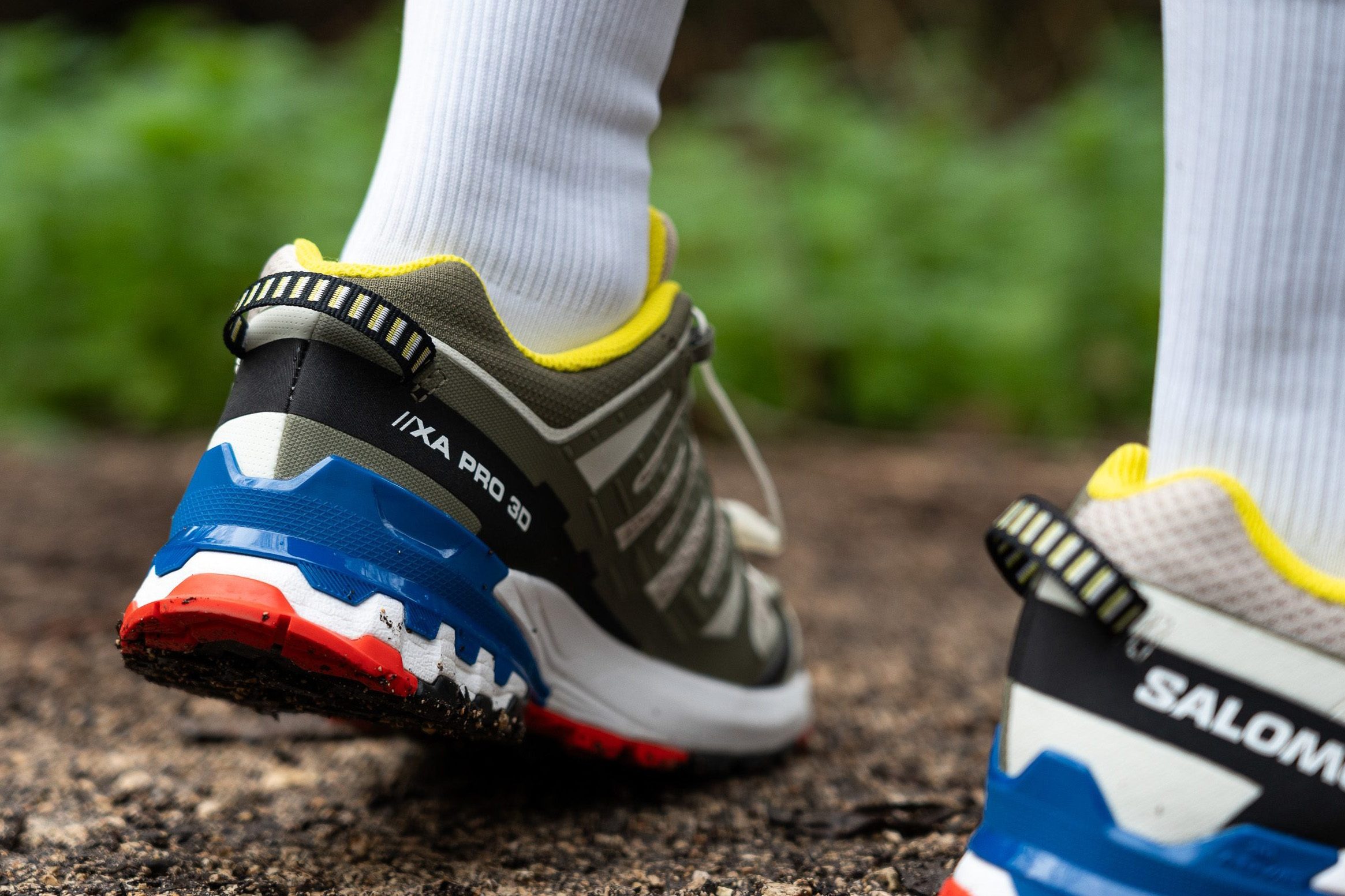
However, these stability shoes are usually found in road running shoes. In the world of trail running, the terrain is ever-changing, and demanding, so there are only a few so-called stability shoes. But, there are features we can look for to understand whether the shoes are more or less stable.
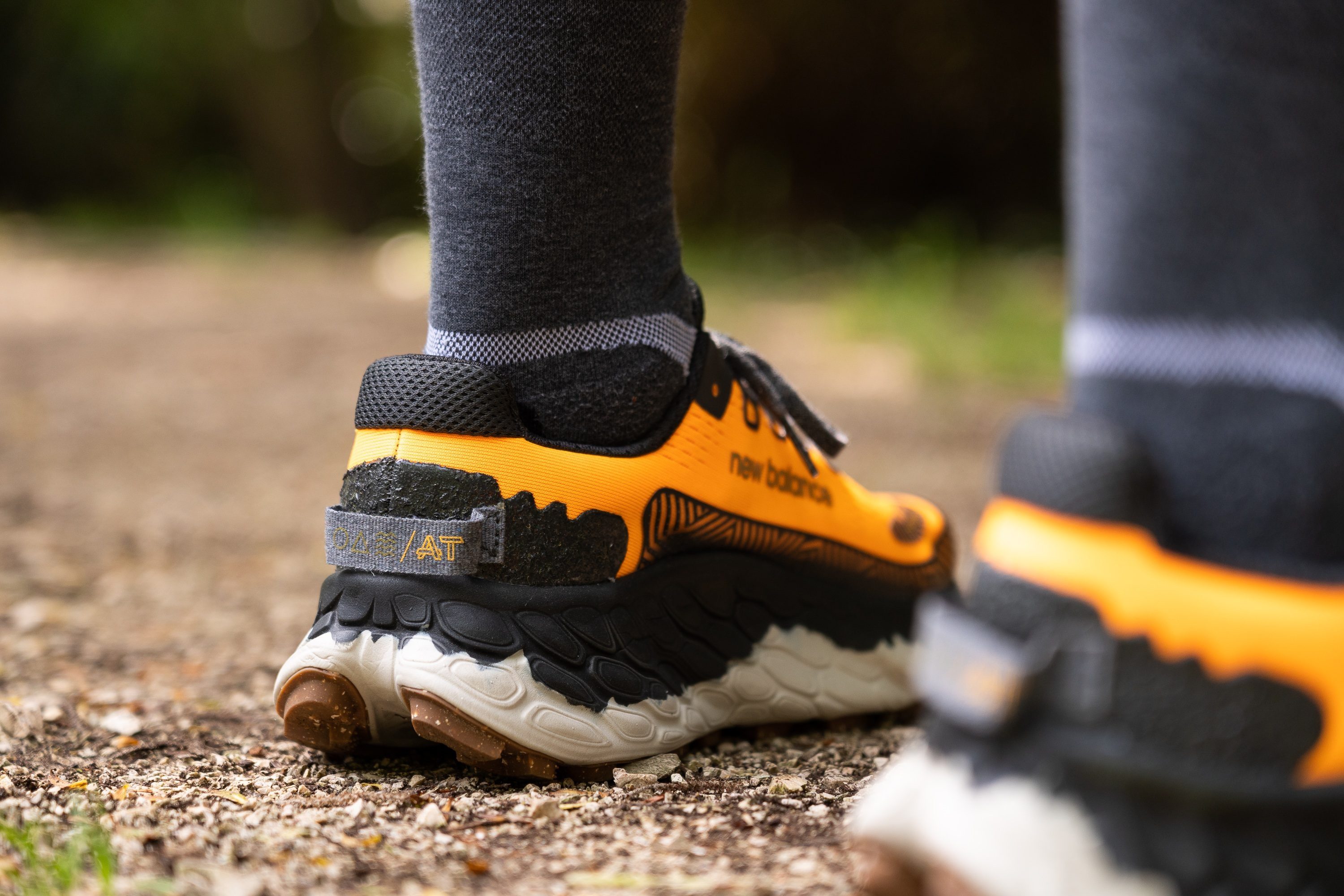
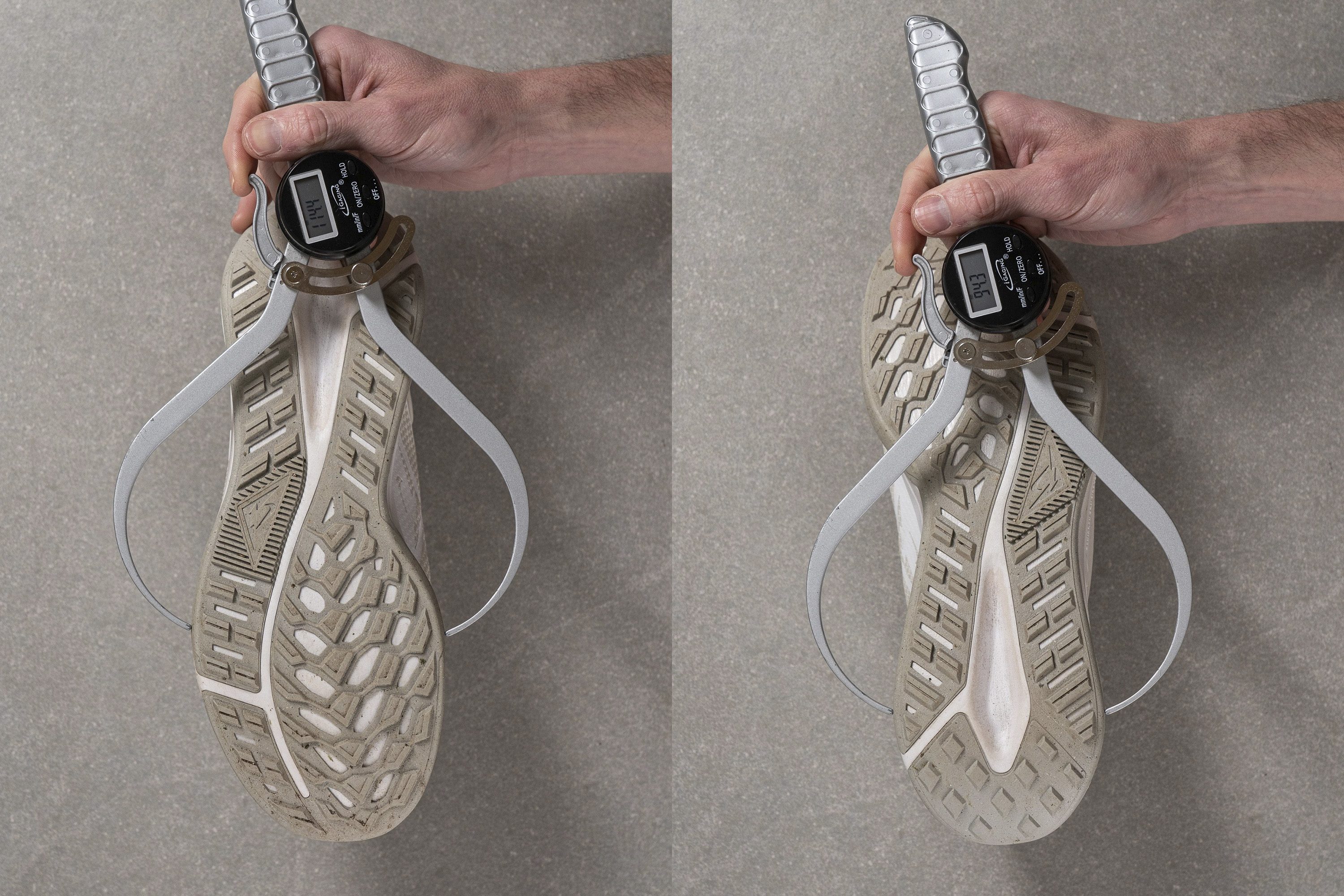
One of the features that definitely helps with stability is the width of the platform. If you want planted landings, this is the way to go. Another feature to consider is the stiffness of the heel counter. Women, especially those who struggle(d) with plantar fasciitis, enjoy stiff heel counters that lock their heel in place!
Assessing the stiffness of the heel counter on a 1-5 scale where 5/5 is the stiffest
Toebox width in trail running shoes for women
Looking at women’s and men’s feet, there are some differences in general.
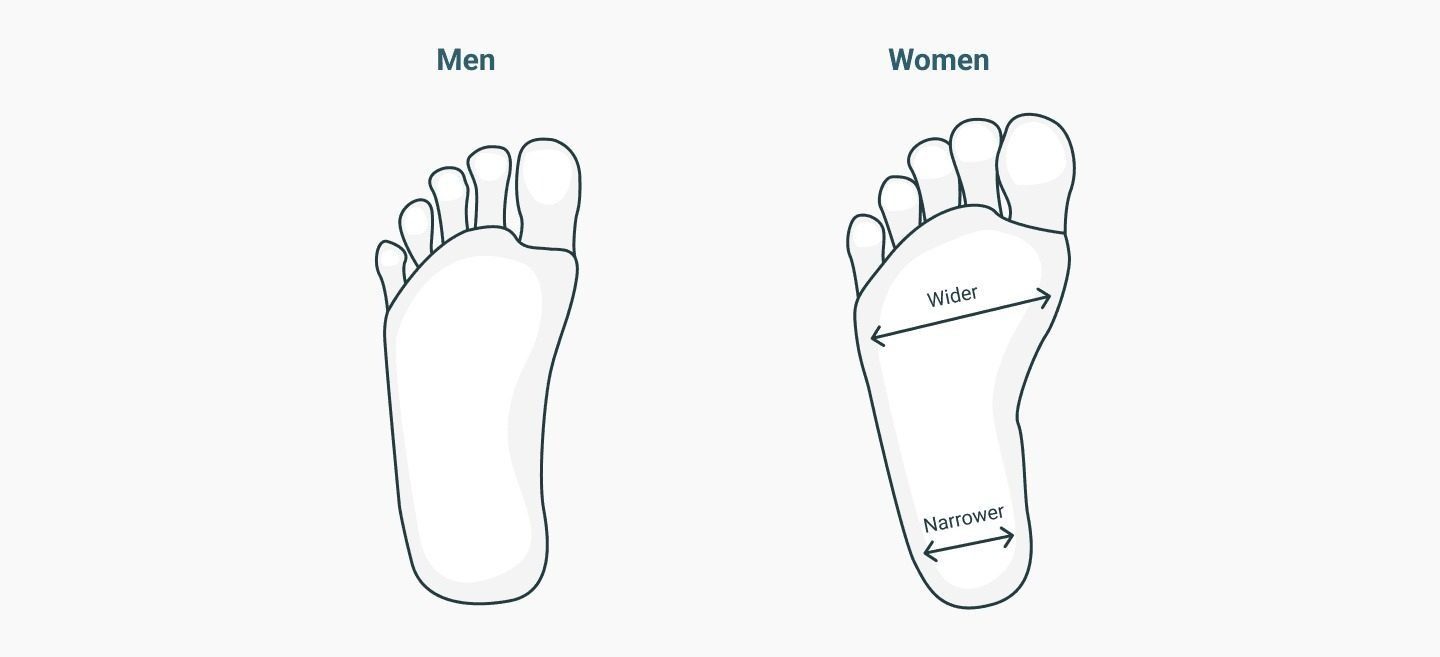
If you need more room in the toebox, it’s best to look for trail shoes that offer that.
Pouring the gel into the shoes to make a mold that allows us to measure the width of the toebox and of the shoe
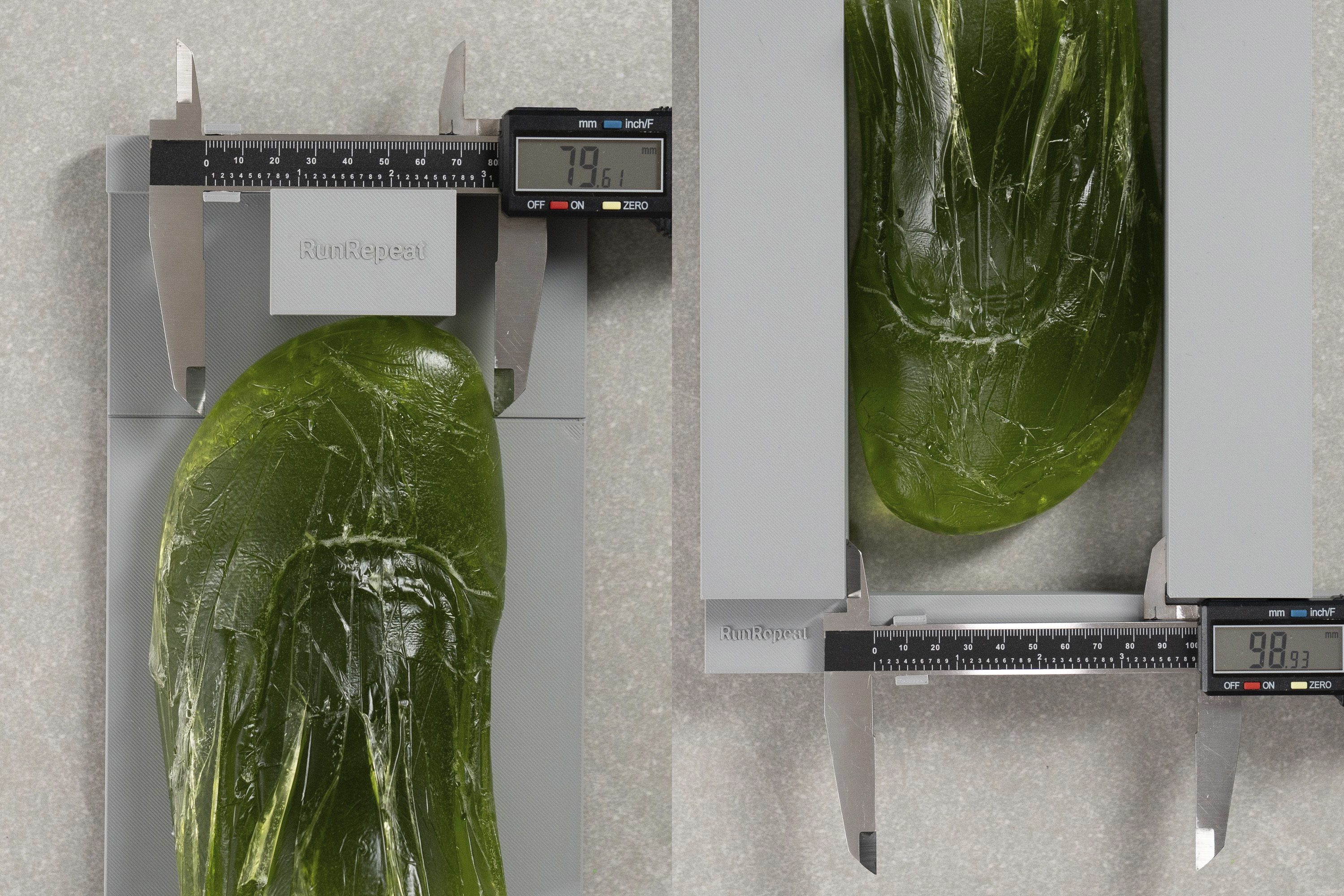
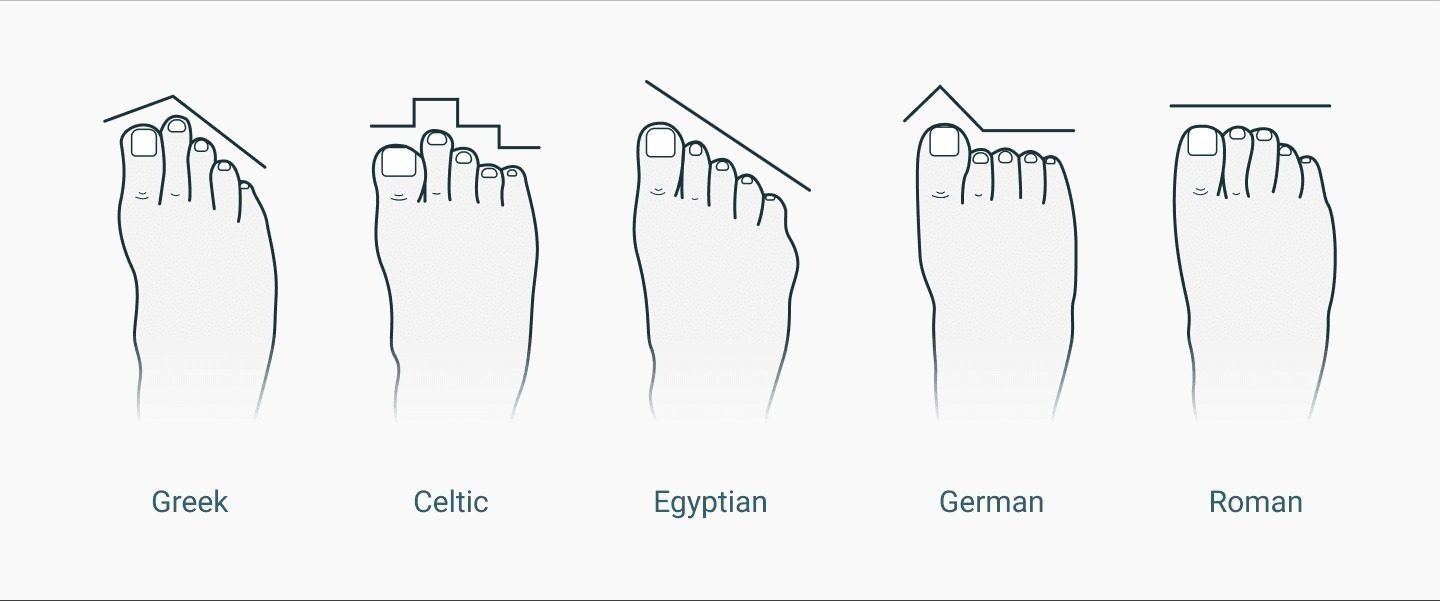
Knowing both measurements is important because some women with, for example, Greek shapes can wear pointy shoes, while others need more square-ish toeboxes.
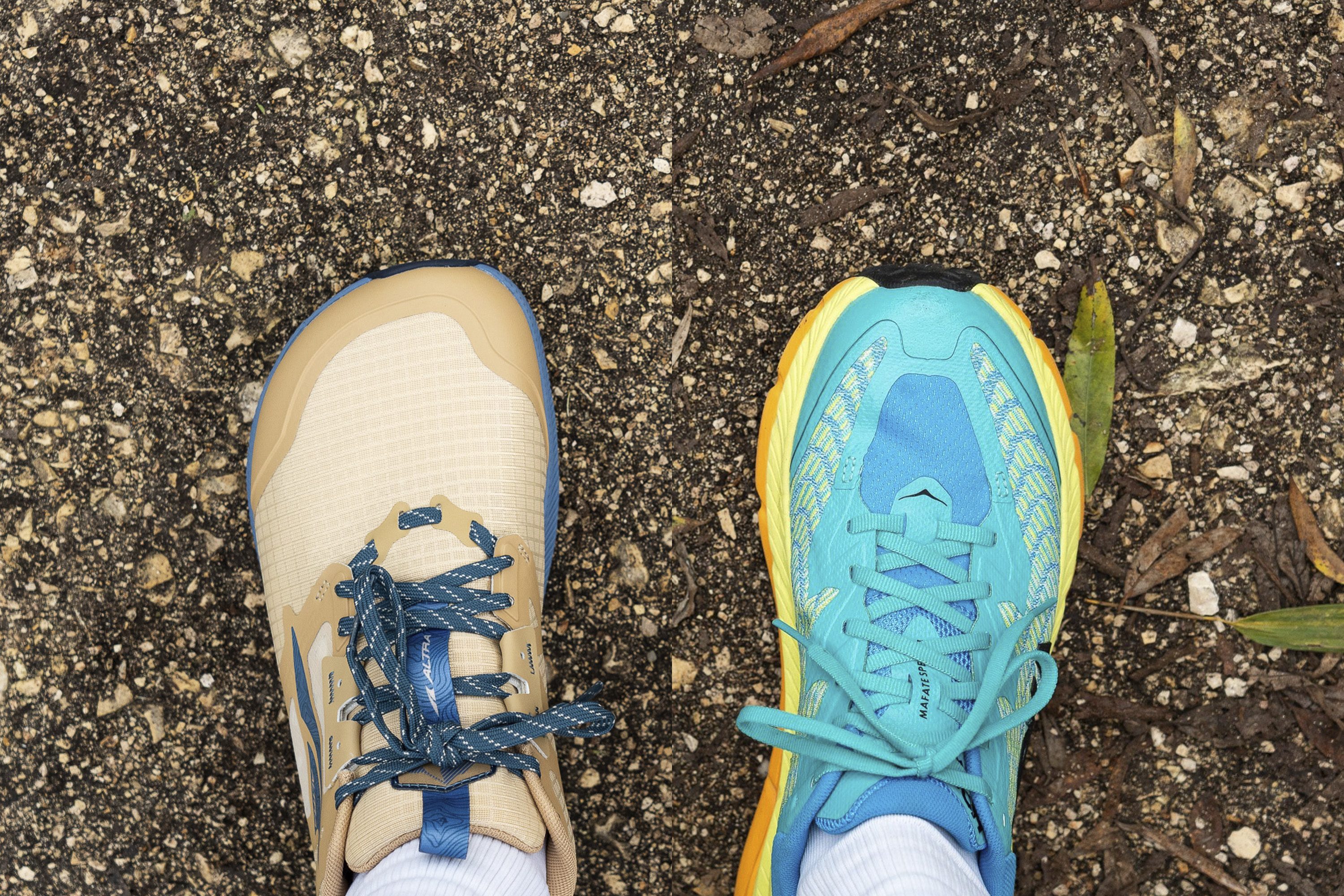
vs. a very pointy/tapered toebox on the right (69.8 mm at the big toe)
Here, we list trail shoes that might work best for you if you need more room at the big toe:
In case you need more space where the shoe is the widest, look at these shoes:
And, if you actually need a narrow toebox, look no further:
When your big toe is squished from the top
Our gel measurements also allow us to measure the height of the toebox. This measurement comes in handy, especially for ladies whose big toes tend to get black toenails or even bleed when the toebox is too shallow.
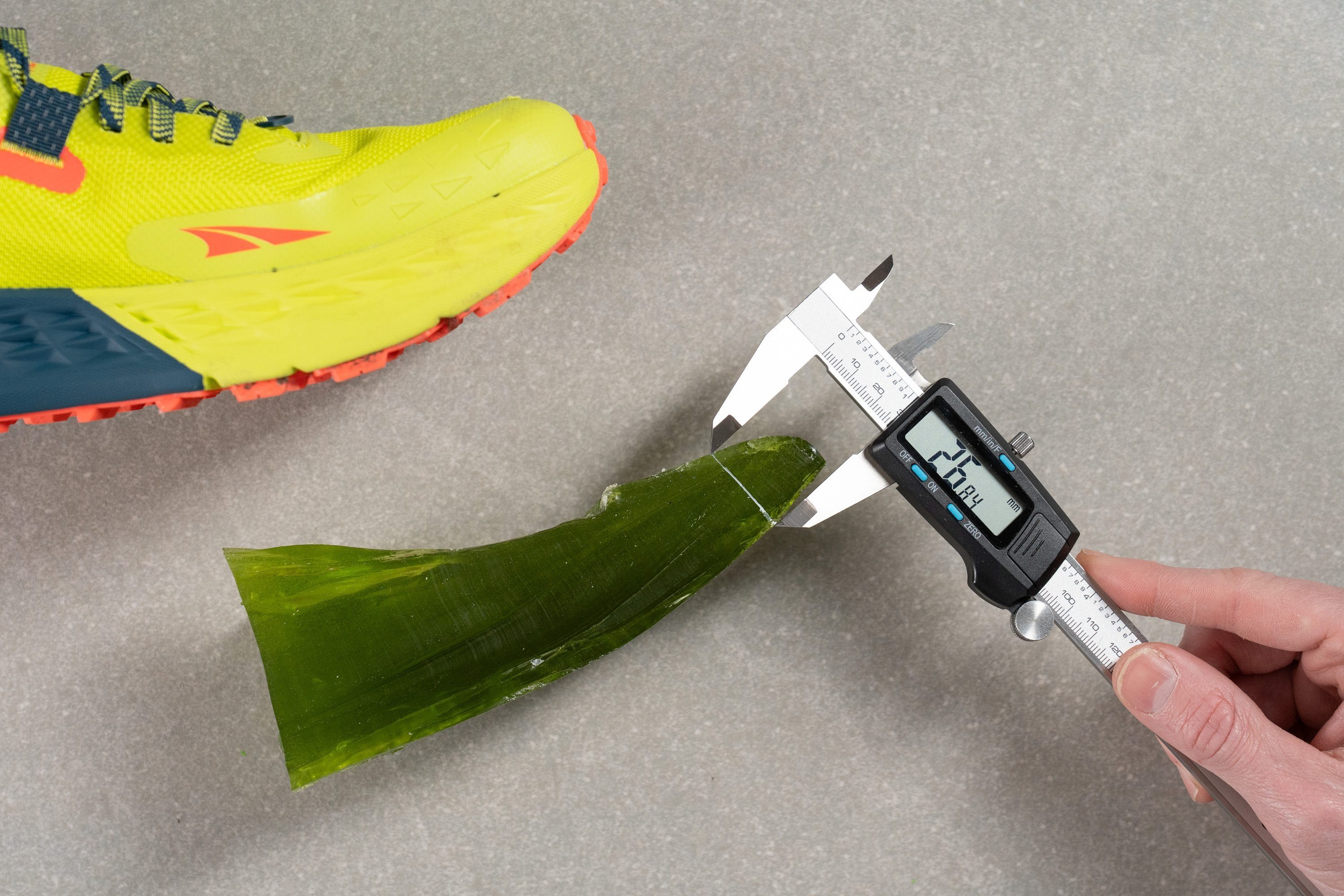
If you have big toes pointing up or simply toes that need more room above them, here are the trail shoes with the highest toeboxes:
Durability of women’s trail running shoes
In road running, runners tend to get as many miles as possible on the road. But in trail running, it’s not just the outsole that wears out, but the lugs that are very prominent and easy to tear or rip apart when running over obstacles or sharp rocks, and the toebox can also get damaged easily.
Testing the durability of the toebox in RunRepeat lab
When testing the toebox durability, we press a dremel against it, always at the same pressure, RPMs, and time duration, and based on the dent, we assess the damage on a 1-5 scale. 5/5 is given to the most durable toeboxes that get barely scratched and 1/5 is given to the least durable ones, with very deep dents.
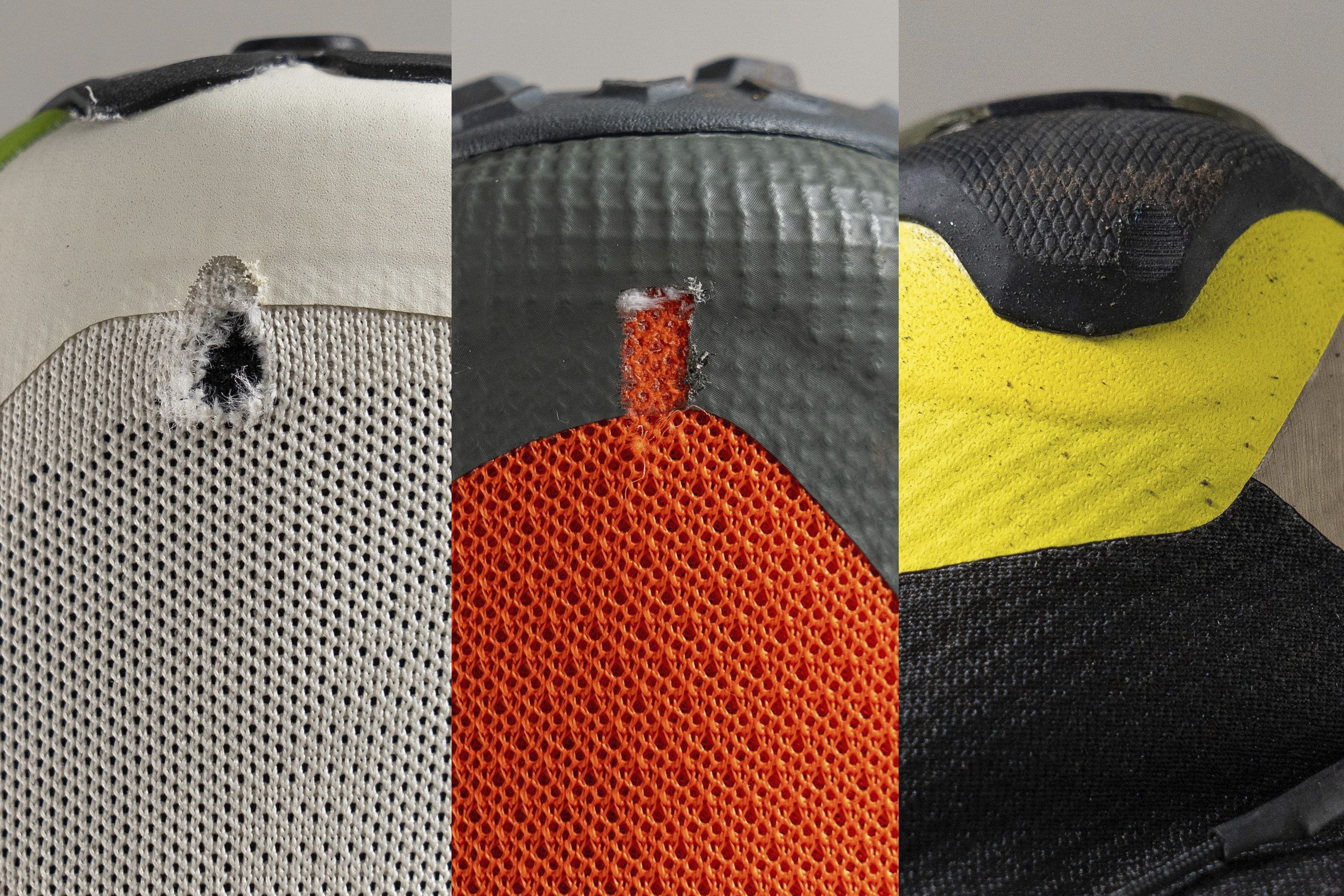
We also test the durability of the outsole, or better said, lugs.
Standardized outsole durability test
Once we’re done with the dremel, we use a tire tread gauge to precisely measure the depth of the dent.
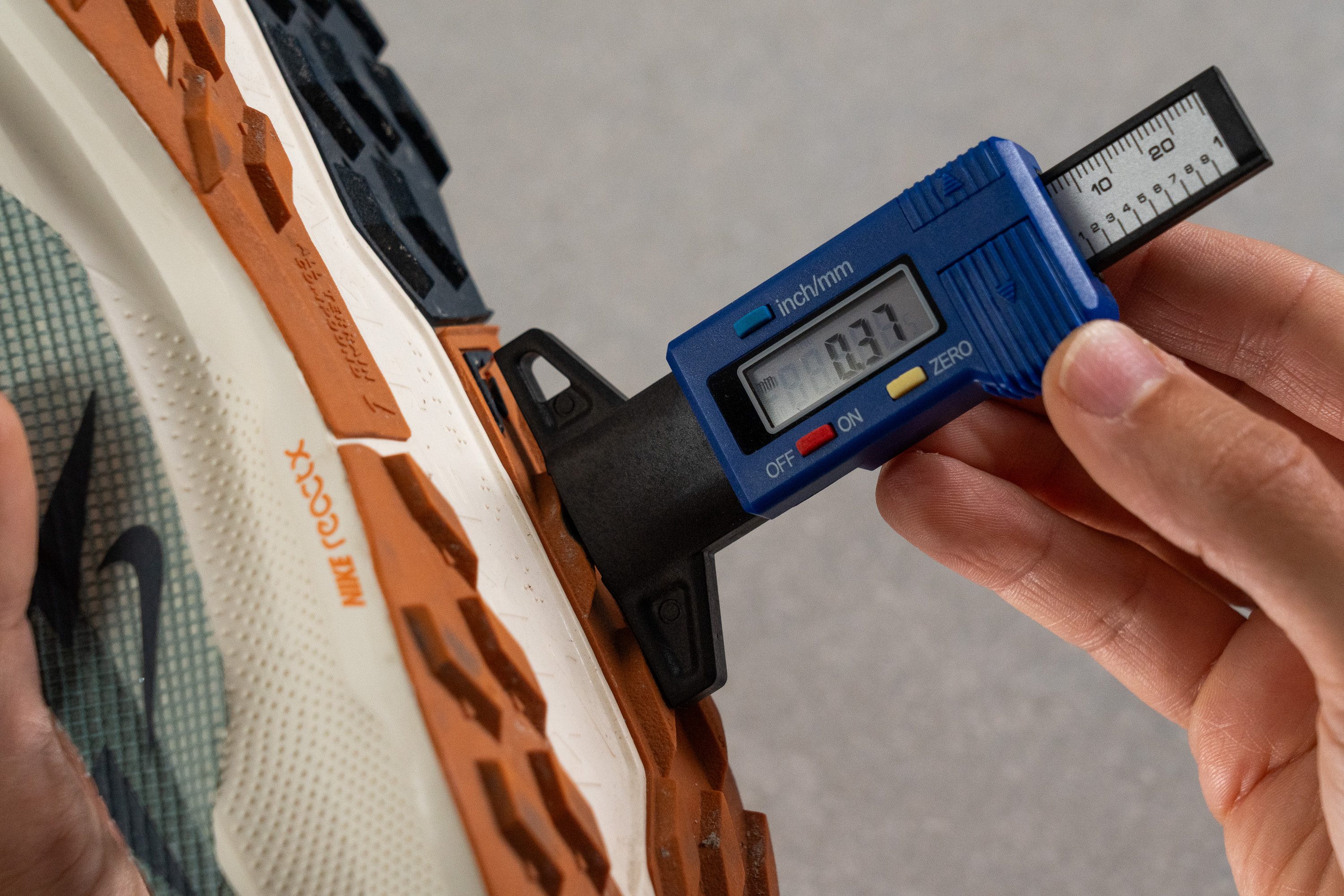
When dents are deeper, we know we tested less durable outsoles, and vice versa.
